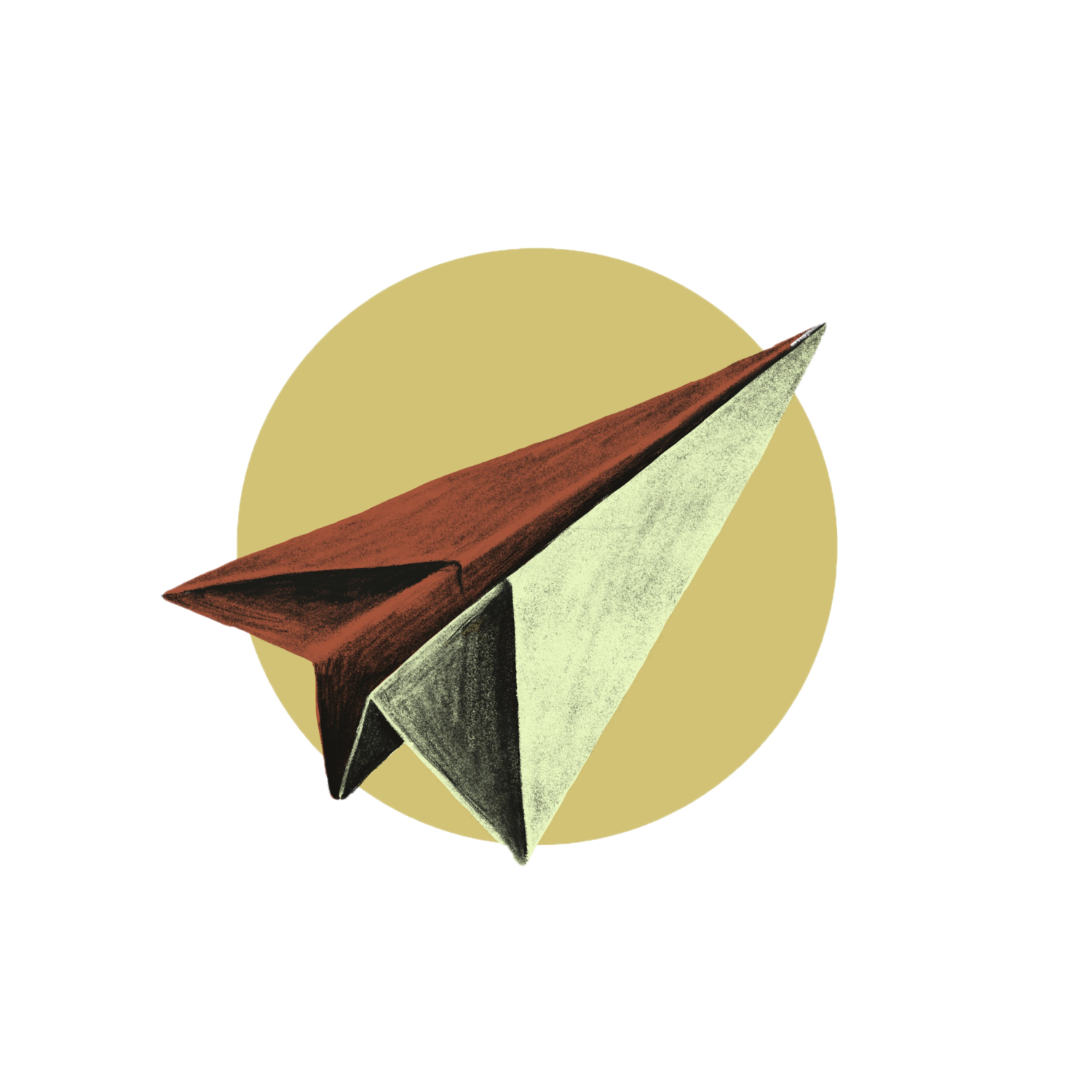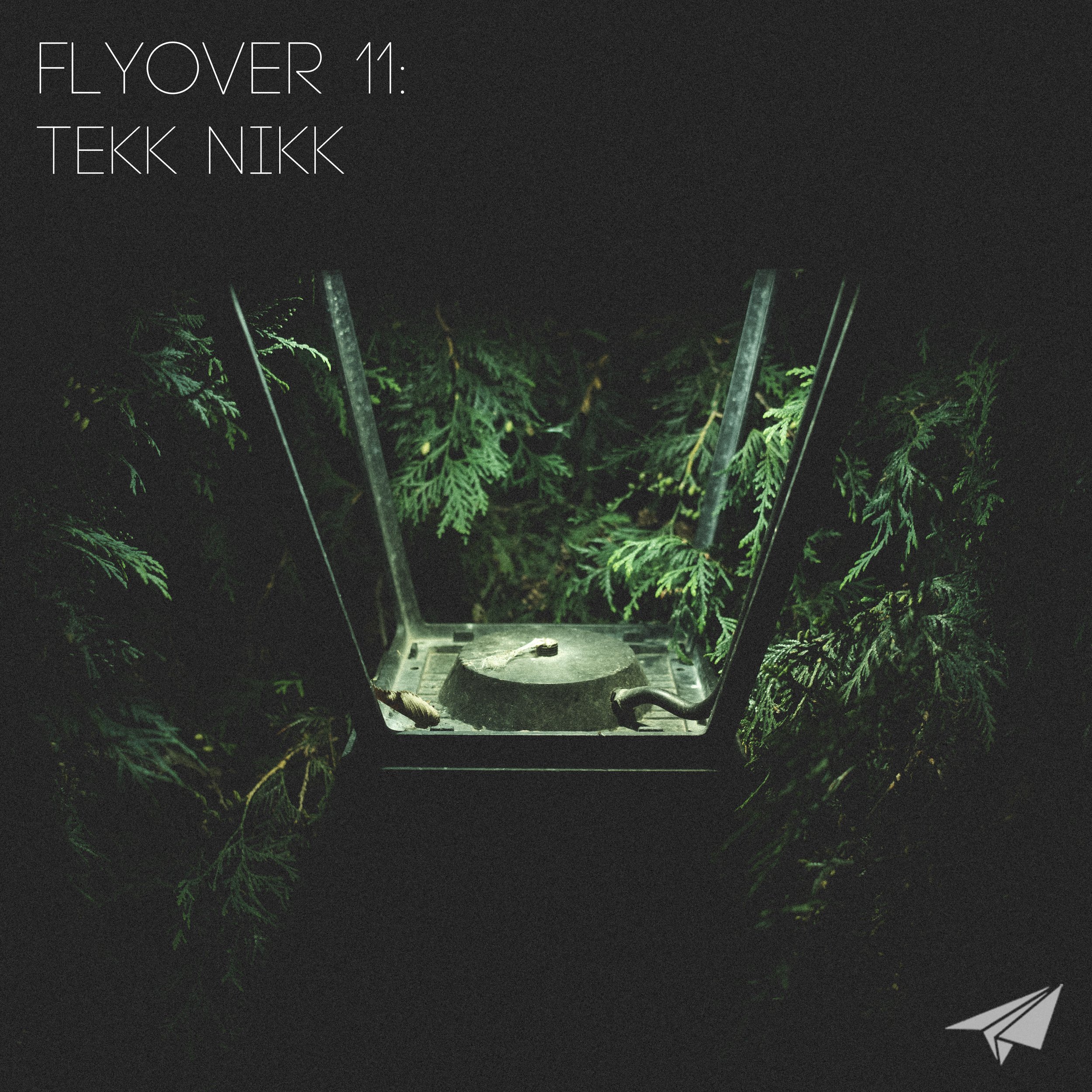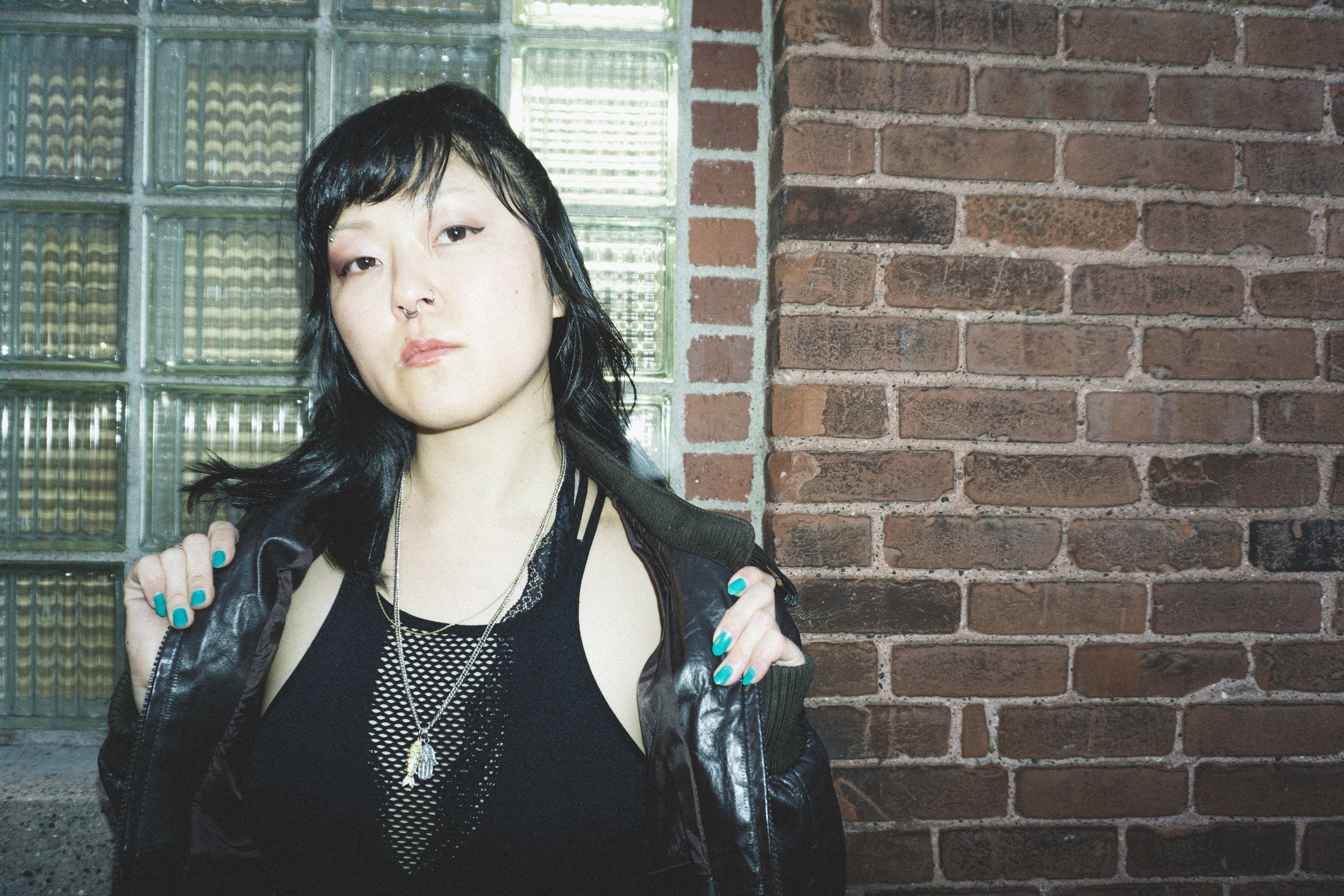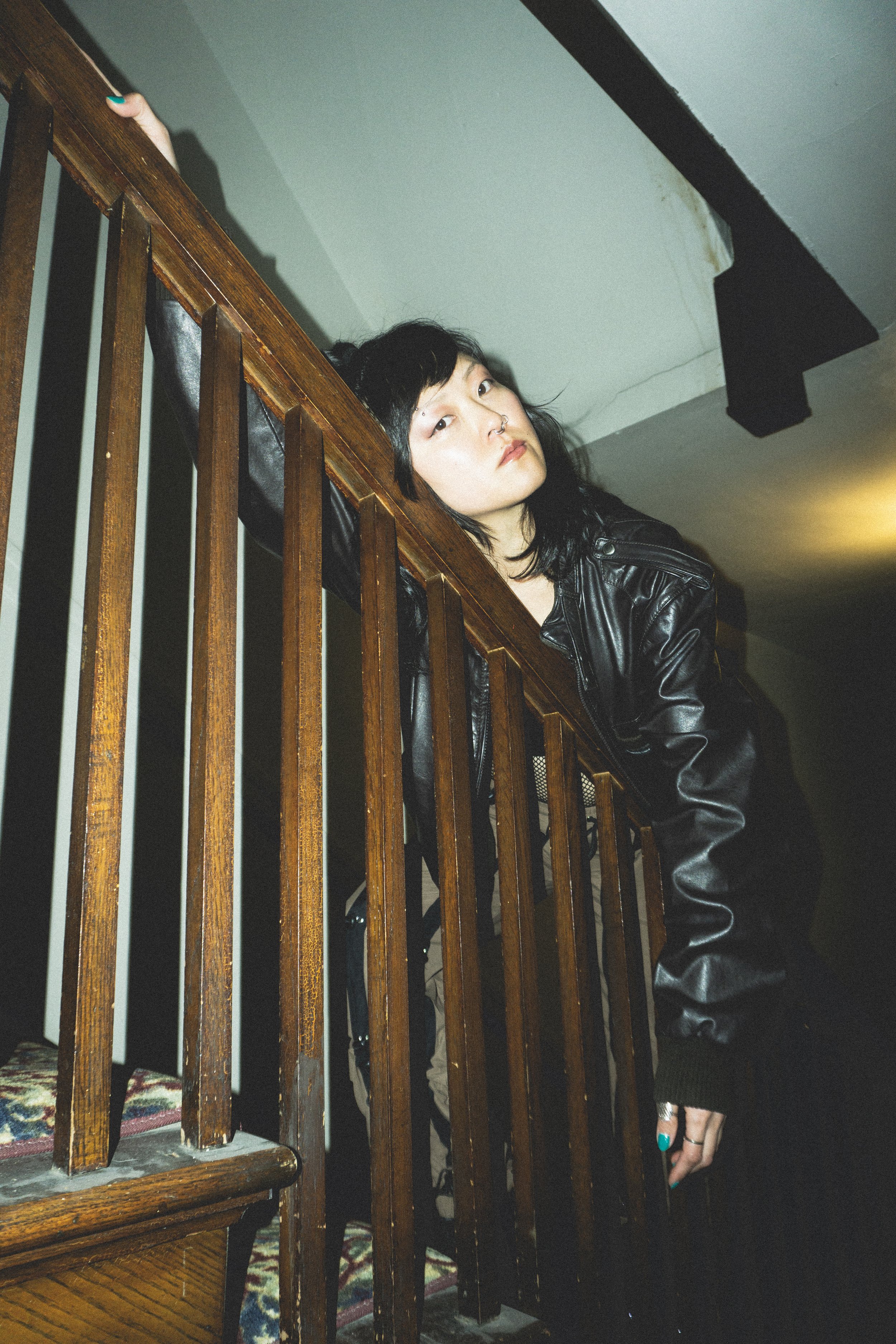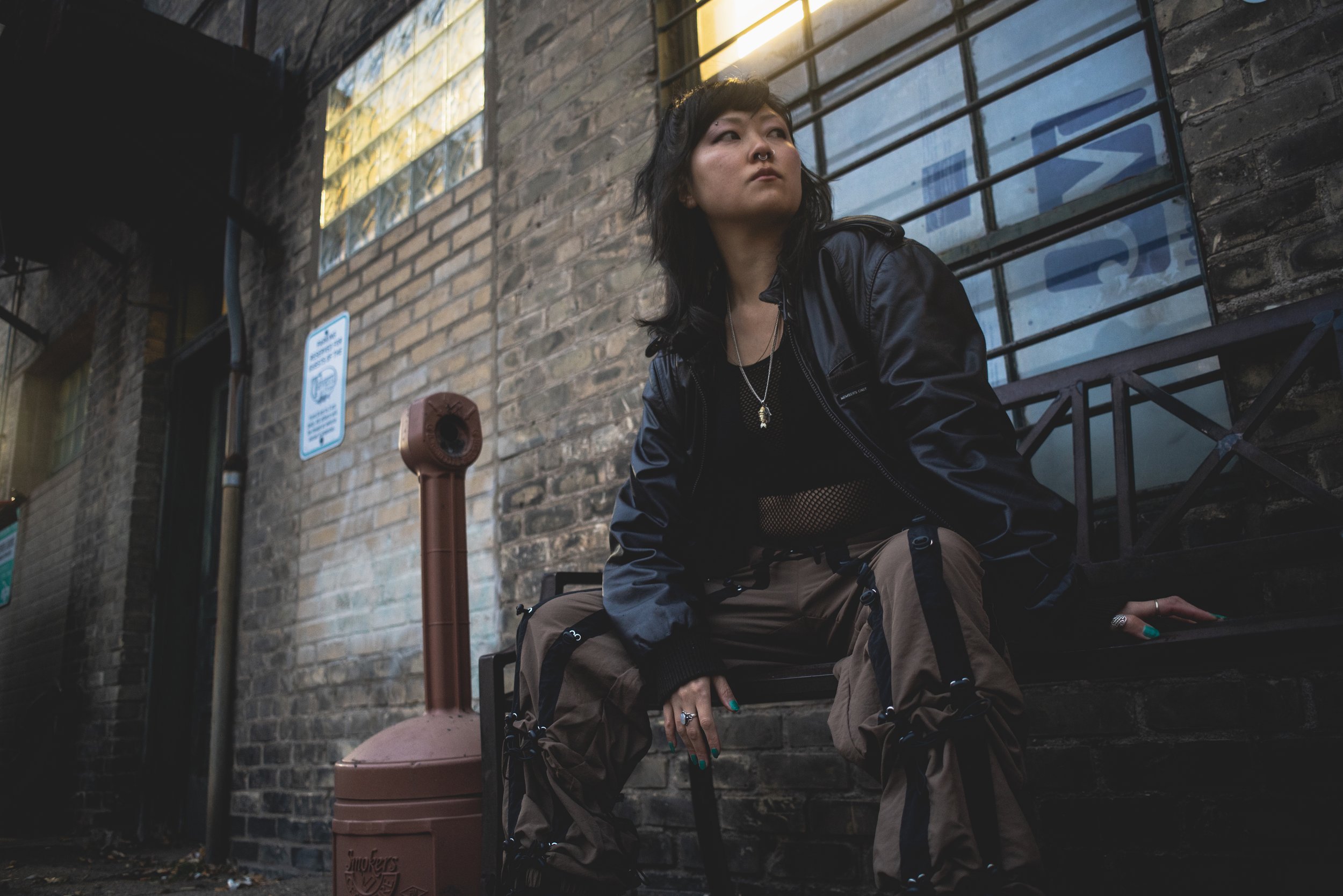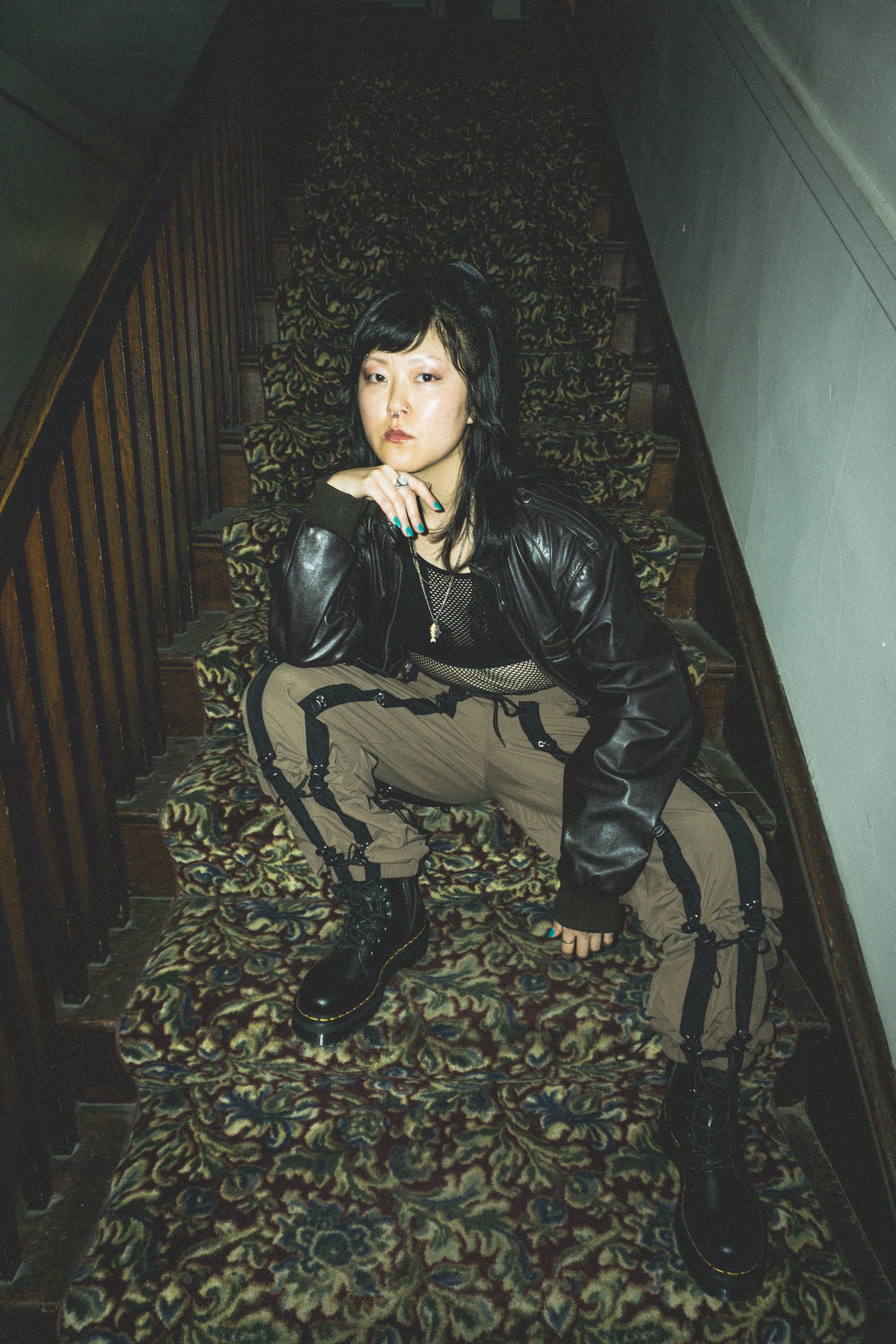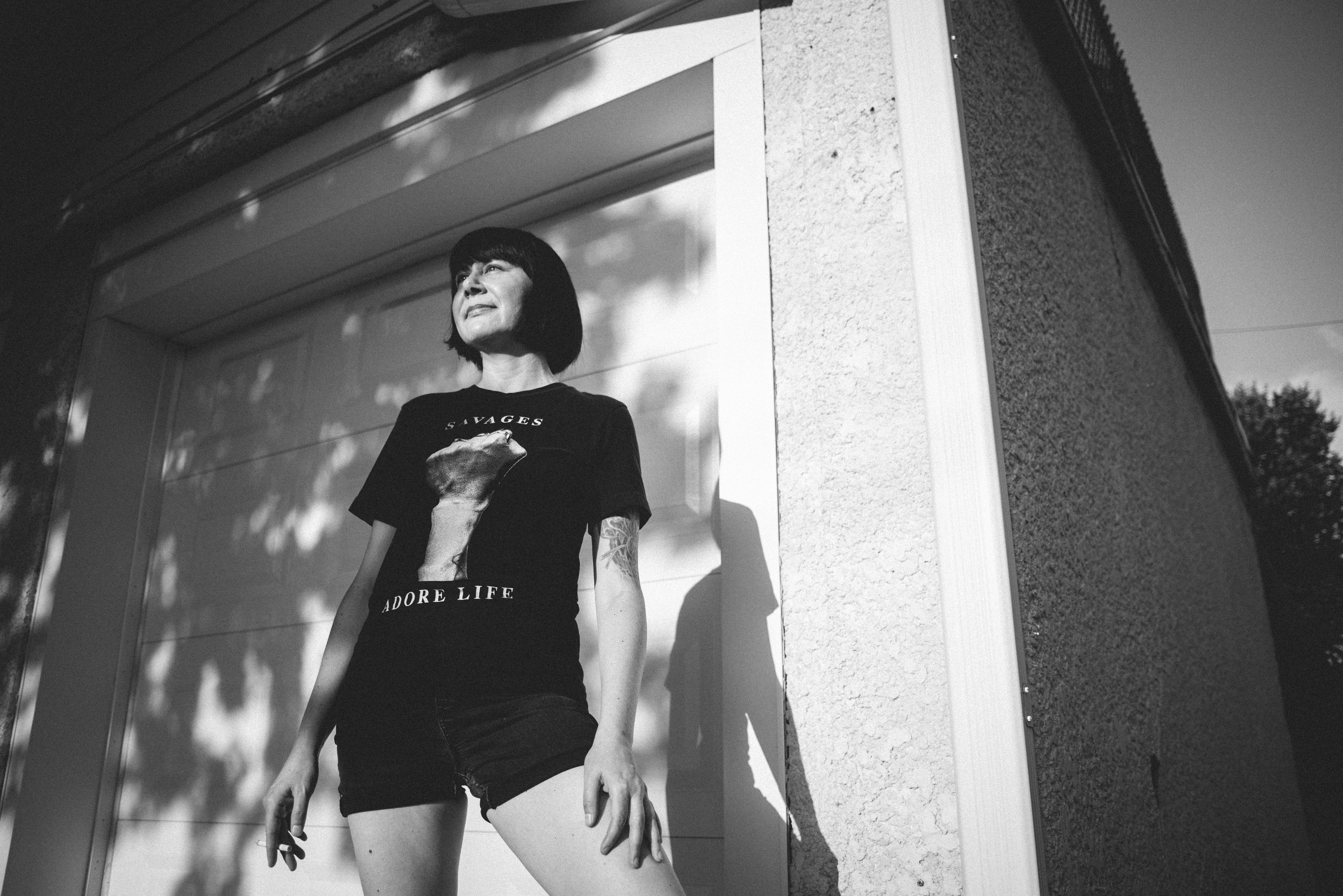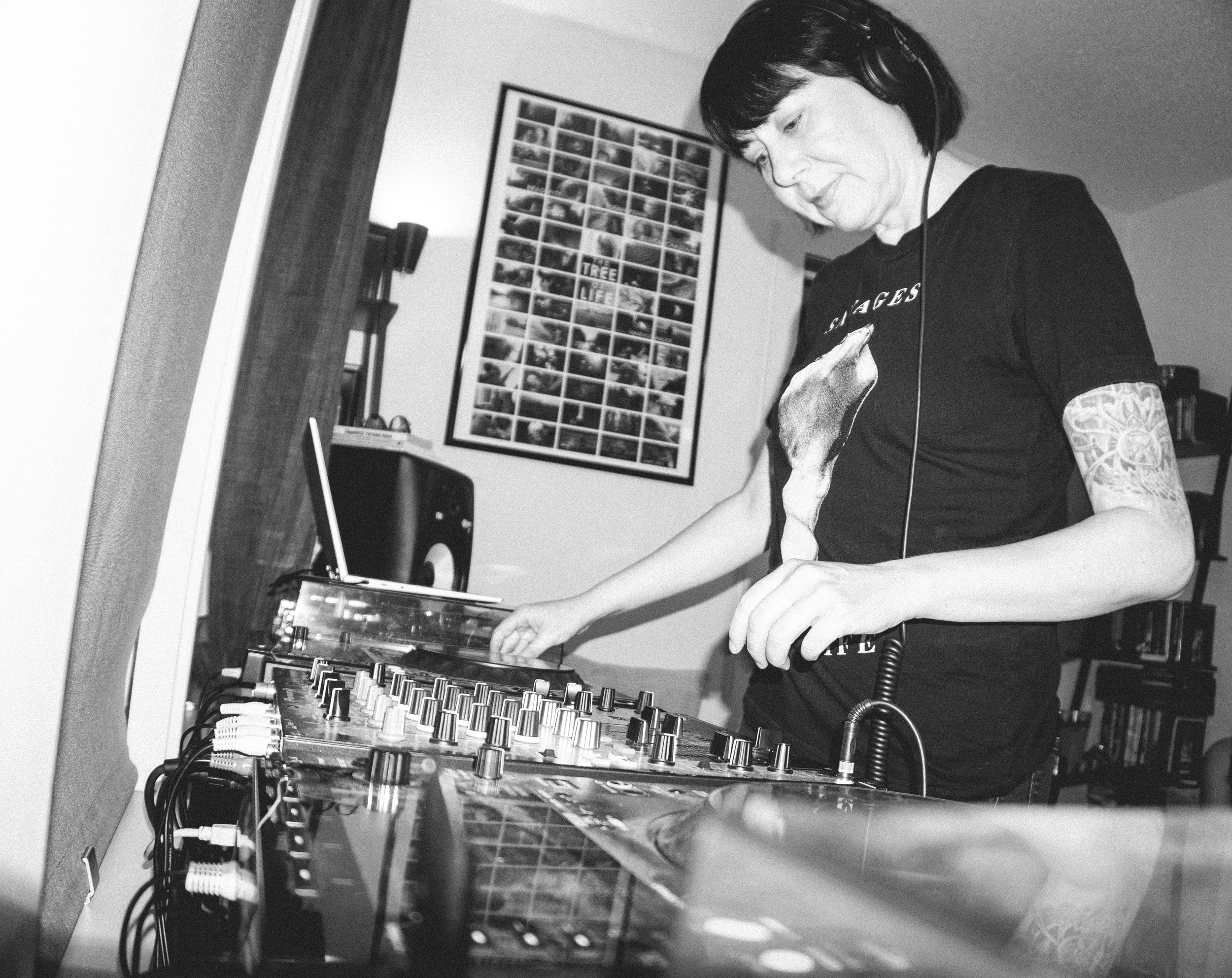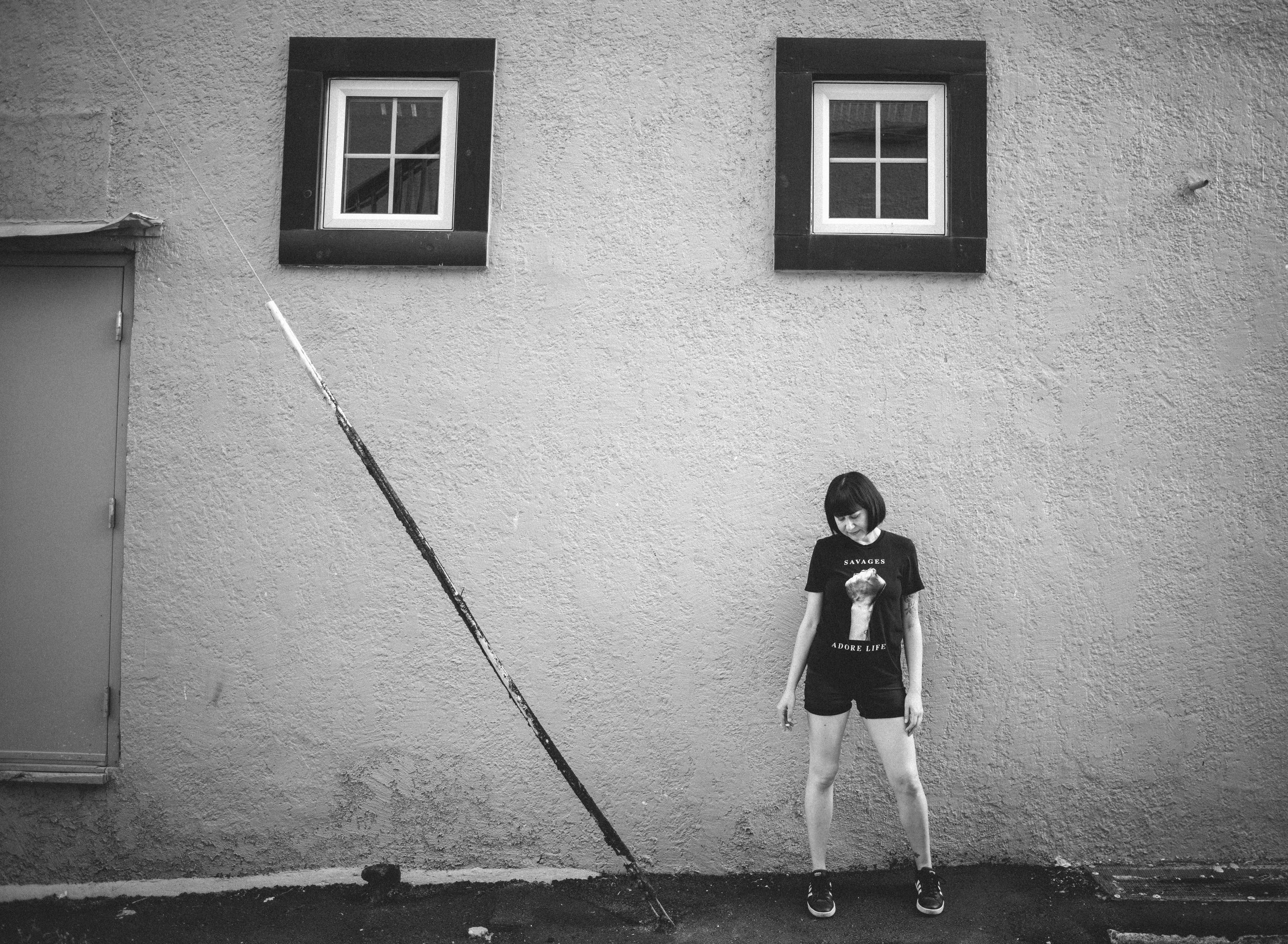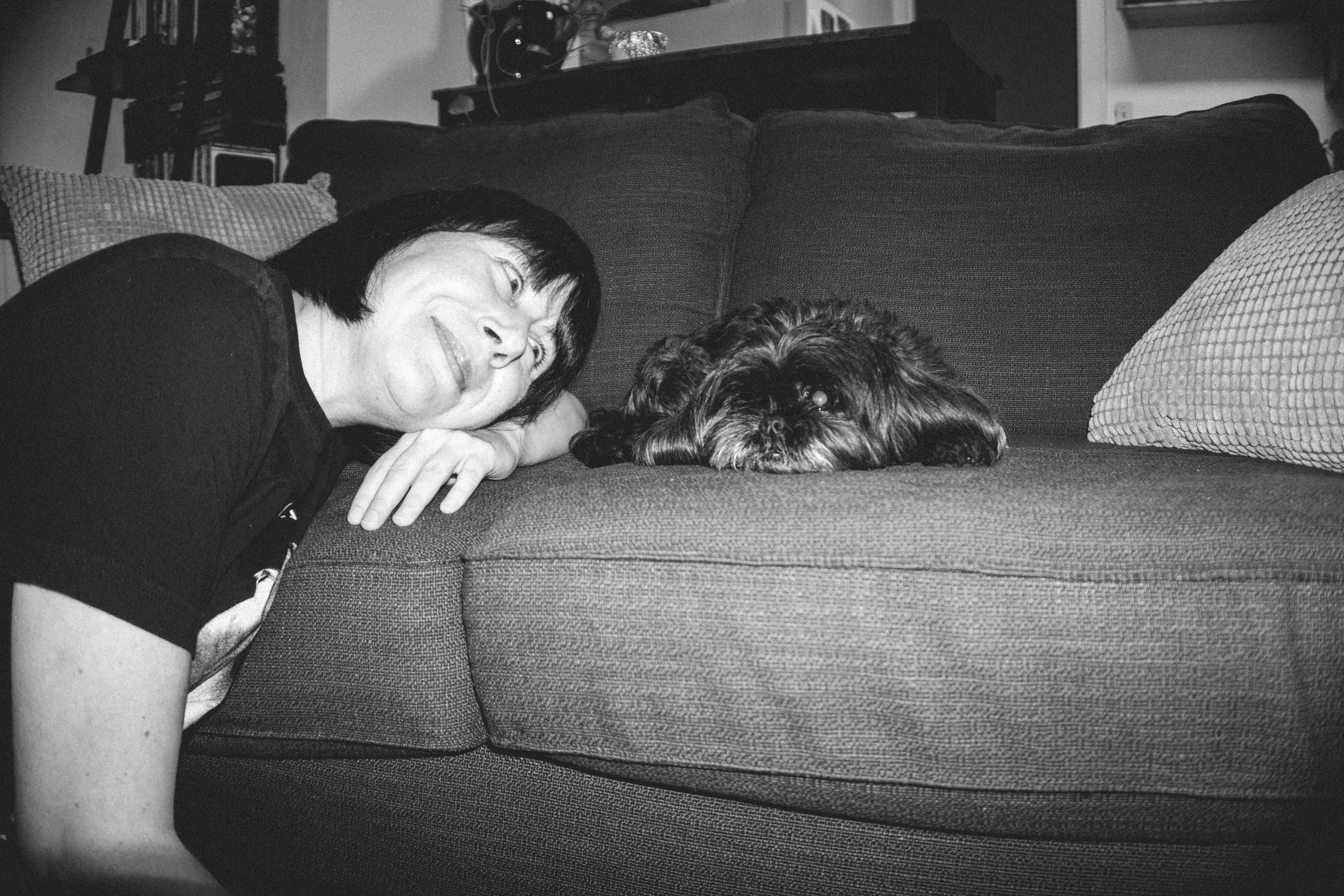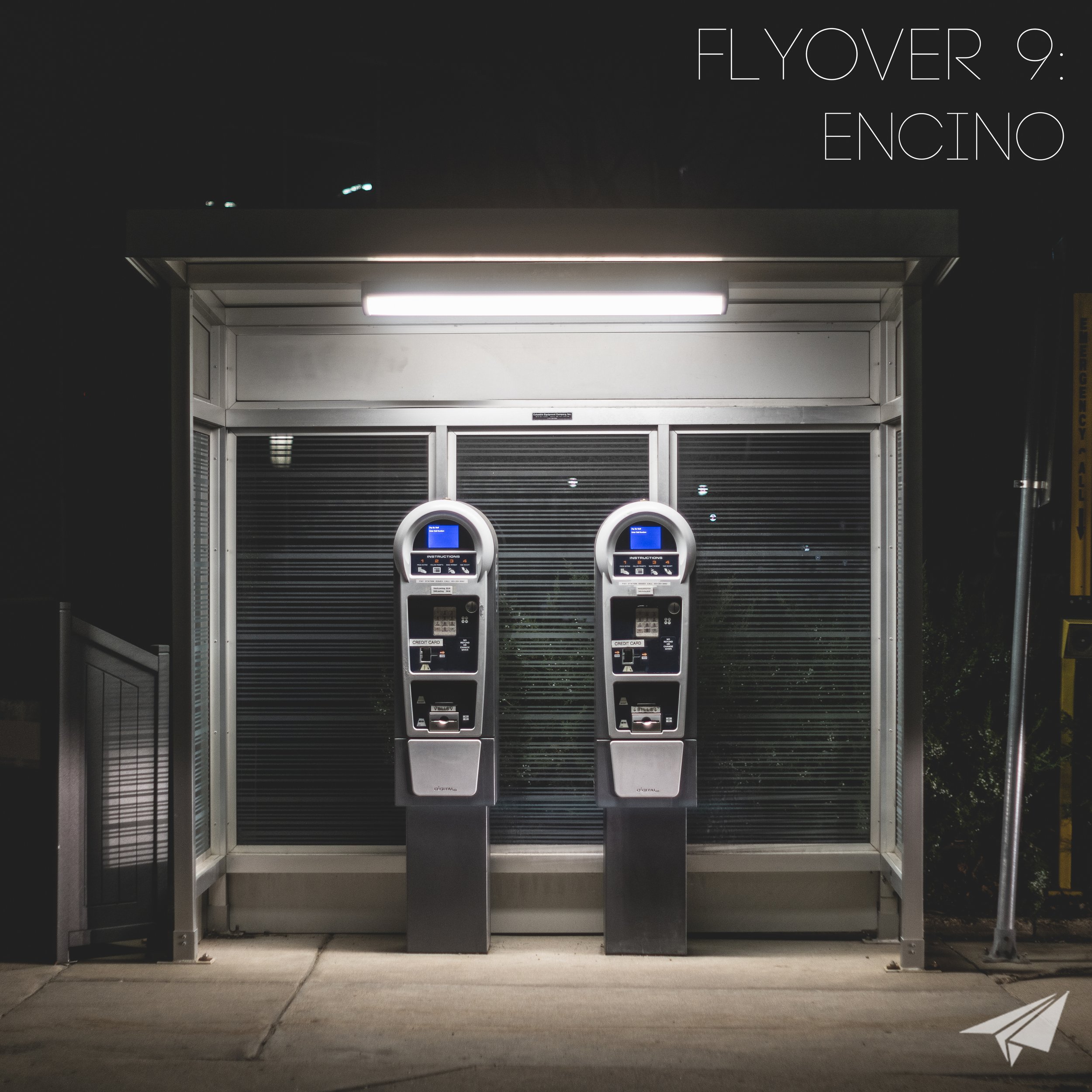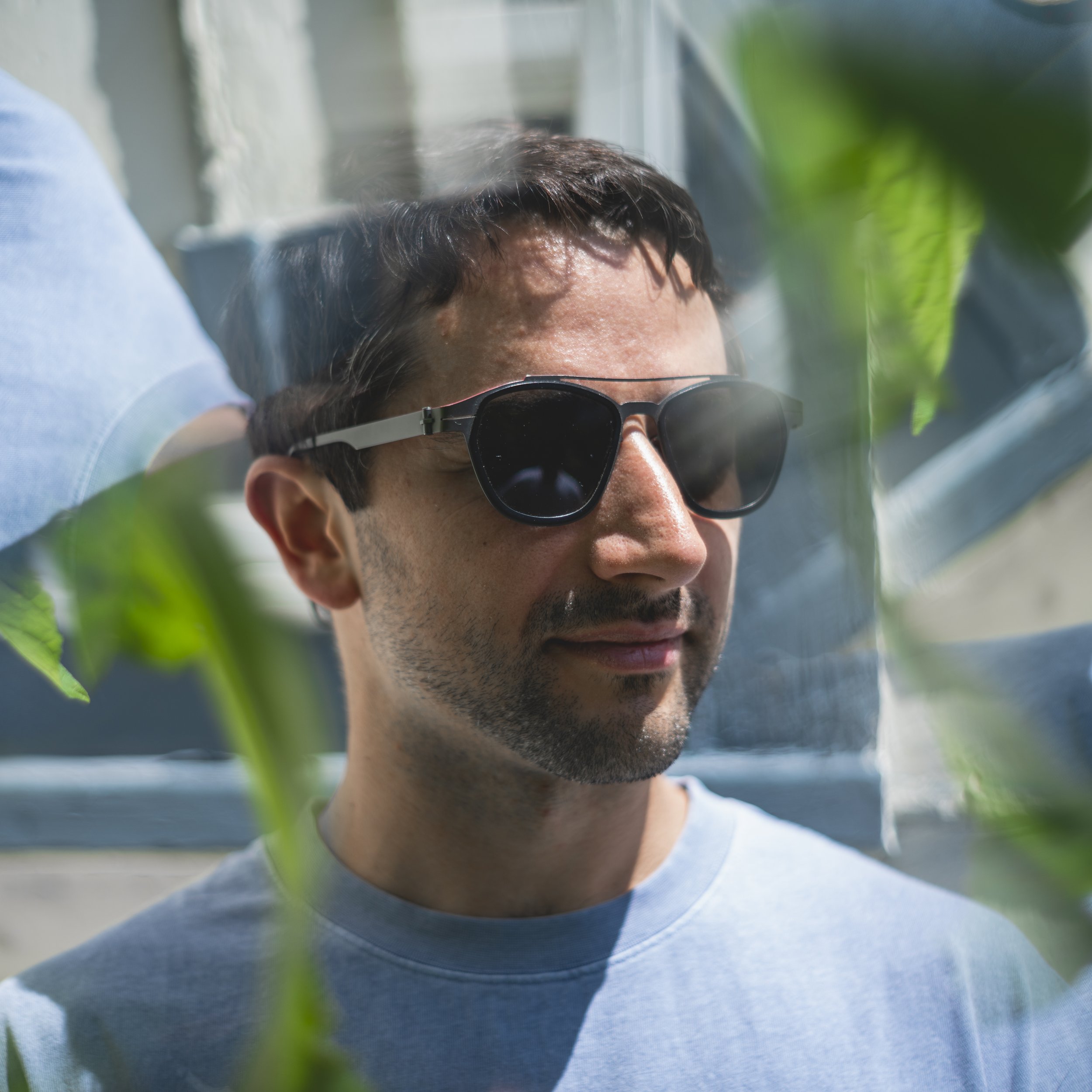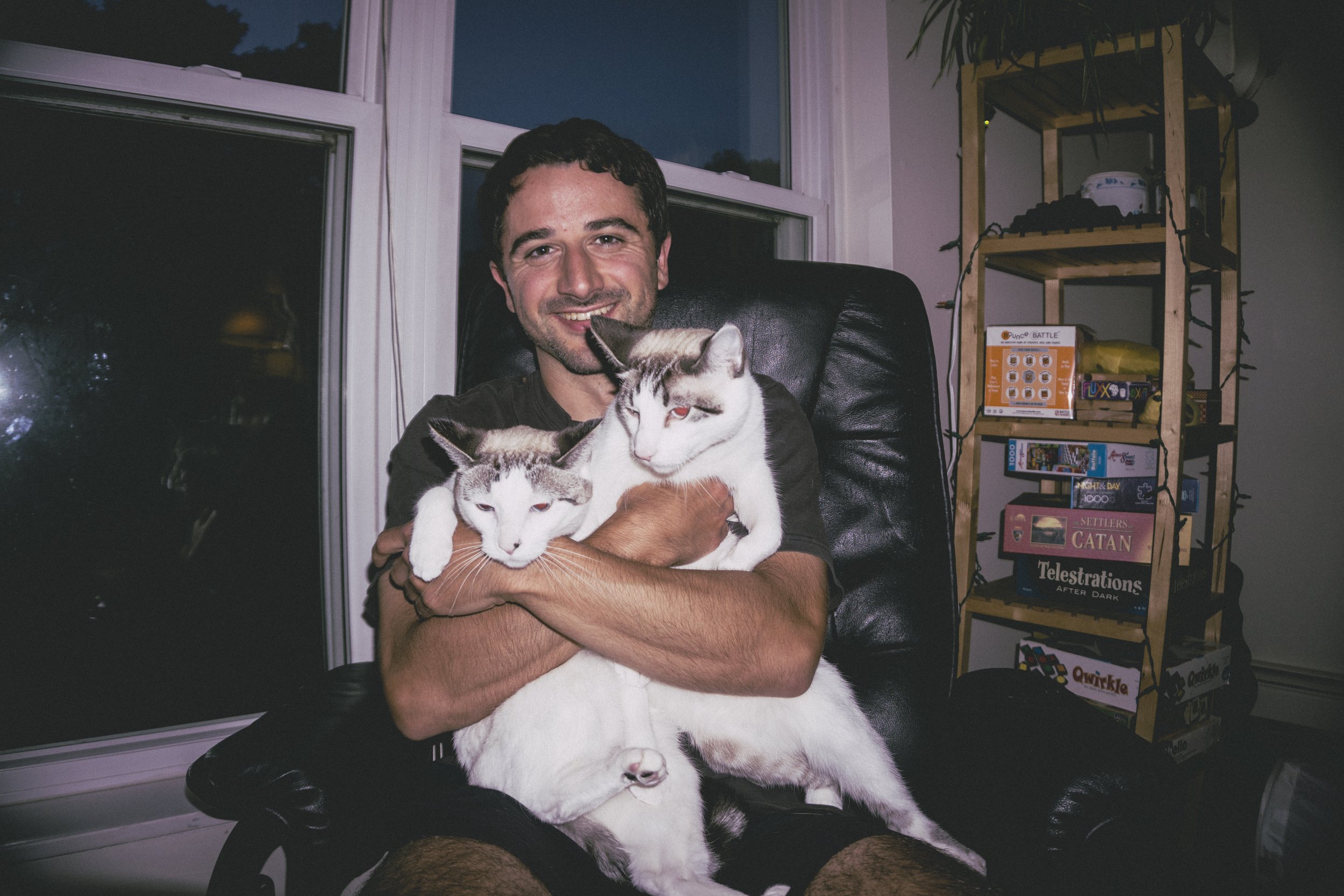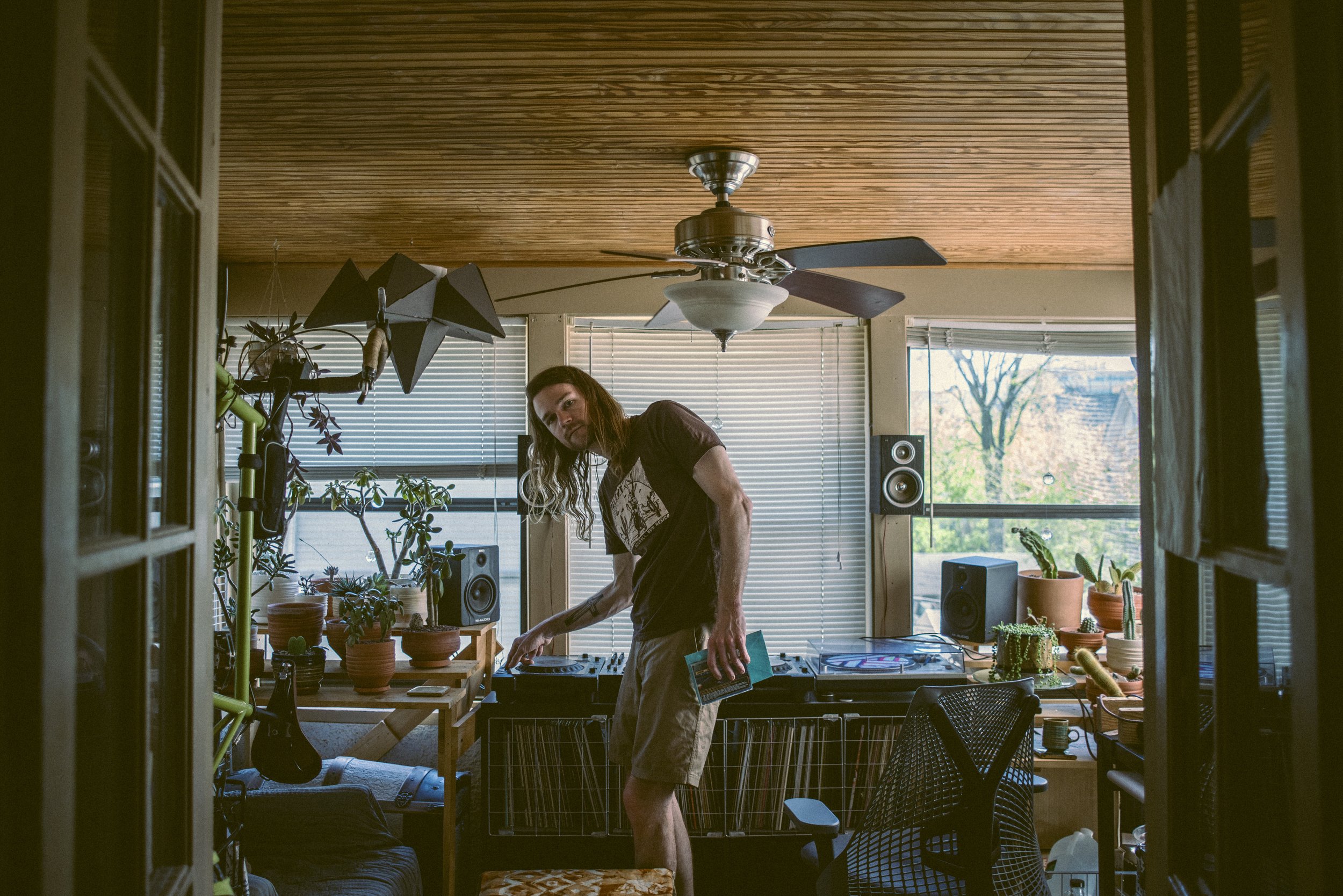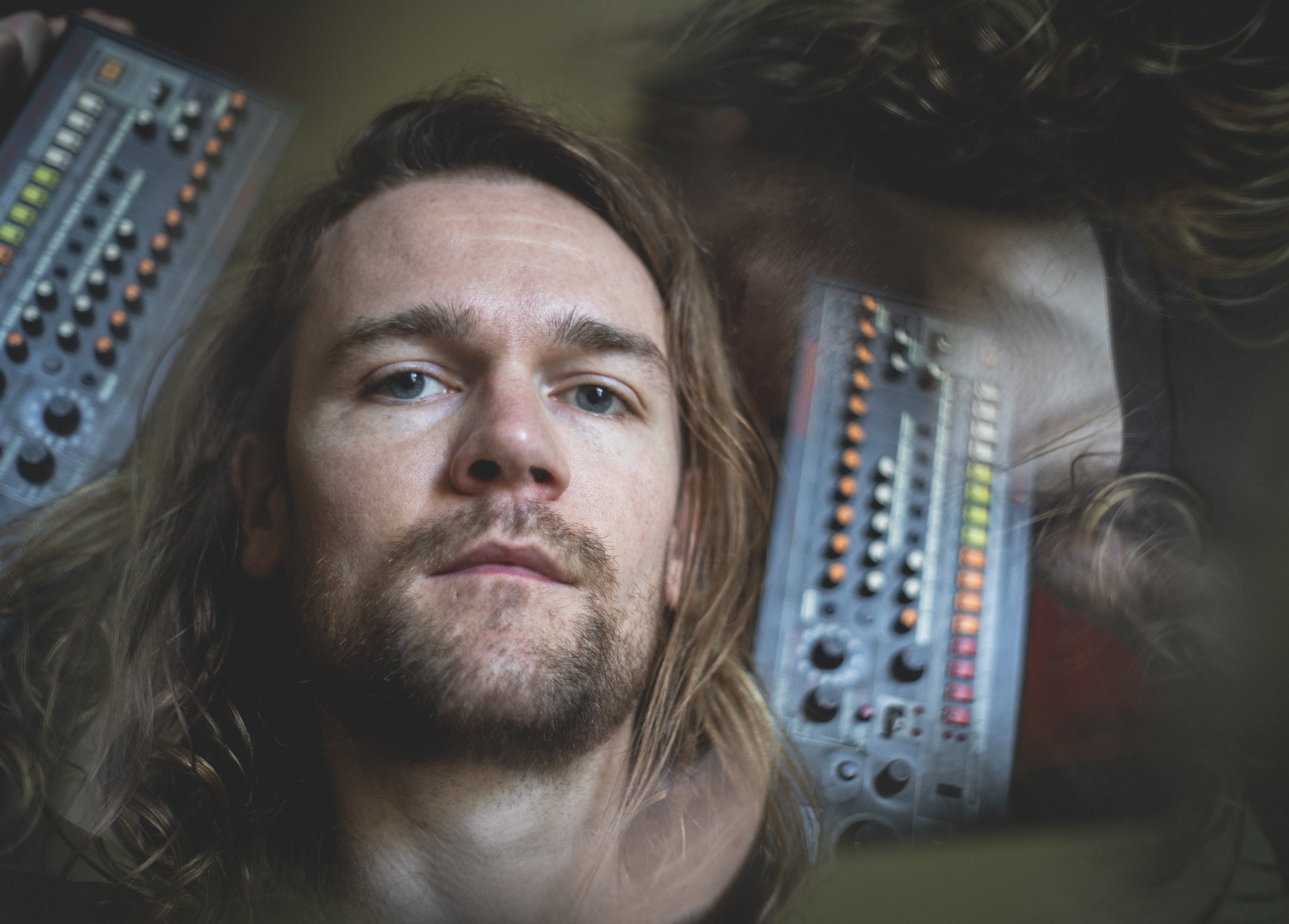
flyover
an open-format music series featuring artists with ties to the midwest underground
home series: centrific
flyover home series // video mixes recorded live in our living room
thanks to Centrific for dropping by and playing some tracks
home series: fluid tranquility
flyover home series // video mixes recorded live in our living room
thanks to Fluid Tranquility for dropping by and playing some tracks
home series: rheannon
flyover home series // video mixes recorded live in our living room
thanks to Rheannon for dropping by and playing some tracks
home series: real girl
flyover home series // video mixes recorded live in our living room
thanks to Real Girl for dropping by and playing some tracks
home series: astrolex
flyover home series // video mixes recorded live in our living room
thanks to Astrolex for dropping by and playing some tracks
home series: ori the ghost
flyover home series // video mixes recorded live in our living room
thanks to Ori for dropping by and playing some tracks
home series: kyle king
flyover home series // video mixes recorded live in our living room
thanks to Kyle King for dropping by and playing some tracks
kylekingmusic.com forever
home series: flower food
flyover home series // video mixes recorded live in our living room
thanks to Flower Food for dropping by and playing some tracks
home series: drew untethered
flyover home series // video mixes recorded live in our living room
thanks to Drew Untethered for dropping by and playing some tracks
home series: akko
flyover home series // video mixes recorded live in our living room
thanks to Akko for dropping by and playing some tracks
home series: liminal form
flyover home series // video mixes recorded live in our living room
thanks to Liminal Form for dropping by and playing some tracks
PREMIERE: Feel Free Hi Fi - Dragon Dance
We caught up with the Twin Cities sound system purveyors of Feel Free Hi Fi to learn about their multidisciplinary approach and process. Stream the title track of their upcoming EP Dragon Dance above, out via Digital Sting on November 30th.
How did you two meet?
Shawn Reed: I moved to the Twin Cities about ten years ago from Iowa City and met Derek when he started dating a friend of mine who had also moved from Iowa City around the same time as I did. I'm not exactly sure what year we met. I had already been in the Twin Cities for a few years I think. We hit it off by talking about underground music and specifically our mutual interest in custom-built sound systems. My interest is in Reggae/Dancehall history and Jamaican sound system culture and its influence beyond Jamaica.
Derek Maxwell: Yeah I think it was surprising for both of us we hadn't met before, having many friends and acquaintances in common through art and music. I do have a vague memory that we played a show on the same bill way back in the early 2000s at the Organ House. Like Shawn said we had a lot of mutual interest and I was really getting obsessed with building a custom sound system. Shawn was DJing and doing mix tapes at the time so I think we saw a mutual possibility in combining those passions.
Derek [left] and Shawn of Feel Free Hi Fi and Digital Sting Records.
How did Night-People Records evolve into Feel Free Hi Fi?
Shawn: Night-People and the bands I was in during the time I was doing that label were a big part of my life and it was a prolific time. I did the label full-time for a little over ten years and toured heavily during that era as well as being very involved in booking and curating touring underground music in Iowa City. The pace I went at with all of that and the side effects of that pace on my life and mental health had caught up to me by 2013 and I fully burned out. I ended up moving to the Twin Cities and over the first couple of years of being here gradually dissolved Night-People. The project no longer made sense as my life changed and it reached a natural conclusion. I spent the first few years living in the Twin Cities prioritizing my mental health, slowing down and processing how I wanted to go forward. I really didn't know if I would ever make music again let alone put out records, perform, etc. In the downtime from creating music, my love of Reggae/Dub/Dancehall kept growing and I really dove deeper into that music and the diaspora of it. I started collecting Reggae records in High School but it was just one aspect of a wide interest in many different types of music until it came to dominate my collecting many years later. The first few years in the Twin Cities I spent a lot of time watching old sound clashes on Youtube hunting for obscure 80's Dancehall records online and reading ancient Zen and Taoist philosophy. I did have some ideas floating around about what would end up becoming Feel Free but it was still very murky at that point. UK soundsystem culture was also something I was really digging into and Grime was a big revelation that came out of that, especially the early whitelabel/dubplate aspect, MC clashing, and just the overall gritty aesthetics in how much it related to but was different from Dancehall. Derek and I were listening to a lot of Grime, Gqom, and UK Steppers when we got going building the sound system. Overall my practice of constantly digging and my ingrained sense of DIY lifestyle is what transitioned between the Night-People era of my life to the Feel Free/Digital Sting era even though the musical style and approach changed.
Derek’s custom sound systems and your illustrations/design/silkscreens are a unique pairing. How did you two join forces?
Shawn: I've been evolving my design/silkscreen style over the course of 20 years and the focus of it has also been its adaptability to work with new projects, different pairings etc. So I think it was just a natural fit to apply it to Feel Free releases and visuals which is the Digital Sting side of things. I think there are also a lot of common flows between how we do every aspect of the project. The music production style in many ways is similar to how the artwork is generated by taking different elements and distilling them down and reworking them, taking parts to make a whole. Dub and collage relate to each other in the remix aspect of both processes. The sound system, the music, and the visuals are all modular in ways as well and can be set up differently, changed, taken apart, mixed etc. Coming from a printmaking background I think influenced my musical evolution to think about parts as much as thinking about the whole since printing is largely about layers, etc. DJing, selecting and mixing is also another collage way of working. Derek and I do inhabit different roles in the project so that's nice being able to cover more ground by splitting up duties.
Derek: Although I don't work on the artwork part of Feel Free/Digital Sting I also have a background in visual art, so when I saw the aesthetics/imagery that Shawn was putting together it immediately made sense to me. The sound system for me is a means to an end, having been part of DIY venues and shows for decades, I think about all the parts that have to come together to create a good show. In that example you have to have a great flyer to get people's imagination going and then with the sound it's the final culmination of all the energy that went into putting a night together. Even with the production of the records I think we both imagine sounds as visual elements and like Shawn said the collage brings them together as a whole. Building the speakers was part of a big change in my life, I had always done some form of building but now I am a full time independent carpenter with my own business. So this has become my artistic/creative expression and it's been great to really be able to bring these worlds of work and art together.
Feel Free Hi Fi released their first two records on wax in March 2021. What was that process like? How did that experience compare to this second set of releases?
Shawn: Record pressing takes a lot of time currently around a year at the pressing plant and in our recent experience plants can't really predict very well when the records will actually be done so that presents some challenges in doing the work that is needed to promote a release and time everything out properly let alone floating the down payments then waiting so long to recoup on the dollars put in. The records from 2021 had lots of delays, issues with test pressings etc. it was pretty much the worst experience I have ever had in my long history of putting out vinyl. That combined with everything that was going on with the pandemic, the uprising in the TC, Maga and facist politics becoming more and more mainstream a lot of questions and doubts were at play, like should we even be putting out records in 2020/2021, just lots of not knowing if music should be a focus or how to go forward. I think it took away some momentum in terms of the Prophet Noir records collaborative aspect with the vocalists on that record. We had originally hoped to keep that going in some way, especially after performing that material live with the vocalists right before the pandemic and the pandemic zapped that momentum.
The upside was the records via our Distributor Rub a Dub in the UK sold really well internationally to the point we had to do a repress and that also pretty much sold out. Trying to get any press coverage for the records didn't happen but the distro aspect really delivered and the response from that network seemed enthusiastic which was great. We were really blessed to do a record with Equiknoxx from Kingston JA for one of those first two records. They are really established internationally and are one of the best, most unique, next level musical projects going in the world. That connection helped give us more confidence as well and I think made those distribution connections easier.
This time around it's a bit unknown since it's unfolding currently. We were more prepared for navigating how it works in this current era this time around and the pressing didn't have issues other than just taking longer than expected which we kind of expected haha. A big factor right now is the economic crisis in the UK and the Euro cost of living skyrocketing because of Putin's war actions since those factors really affect the distribution and record store network we depend on. We had to lower the wholesale cost so it's going to make it even tougher to break even etc. The digital/streaming/social media landscape is a whole other giant convo I could go on and on about haha. In short it sucks and is a bummer haha. So even though records are ridiculous to deal with and are so expensive, risky etc. it's just what we gravitate towards doing despite the sustainability of it seeming more and more difficult. Fingers crossed we recoup enough to put out the next one.
How did the records Dragon Dance and Duppy Gun Meets Feel Free Hi Fi come together?
Shawn: Duppy Gun is a project/group of musicians that we have been fans of for many years. I have known Cameron Stallones and M. Geddes Gengras who started the project with IJahbar since my early days of touring etc. so when we got Feel Free going and started making our own tunes Cameron invited us to start sending instrumentals to IJahbar and the record is the result of that. Being a long time fan of Dancehall music it's really been a blessing to have collaborations with Equiknoxx and Duppy Gun come about so organically right out of the gate for Feel Free since both projects in so many ways embody the most forward progressive weirdo side of Dancehall music and we were big fans of both before we ended up working on music together. Being located in the upper midwest in a very removed location having Dancehall be a primary influence we have always been concerned with embodying that influence properly and in the most respectful manner and those collaborations and friendships helped us to continue to analyze and figure that out. Another aspect that is cool is IJahbar has direct family ties to the all time great Reggae group the Congos and the Heart of The Congos was one of the first Reggae records I bought and one of the great records of any genre to me so that's just a cool circular life thing.
Derek: Dragon Dance is the next iteration on the sonic ideas we started on with Prophet Noir. We wanted to keep developing the sound focusing on our interests in Steppers style rhythms along with industrial/electronic sounds and cinematic influences. We had both been listening to a lot of UK steppers, older instrumental versions from JA and newer music that had been influenced by these sounds. There is a sort of sonic warfare element to this style, but also a minimalism that really connected to what we were doing with the Sound System. By the time we started Dragon Dance we had a complete system that was really capable of putting out the full range from sub bass to sizzling highs. I think we were drawn to the idea of making tunes that could really utilize the full capabilities of the sound system. While the record is very rooted in the Steppers sound it definitely is its own thing. When we start working on tracks we often talk about films, and coming back to a visual, there is some idea of storytelling but in a very abstract sense.
Are y’all working on anything else at the moment?
Derek: Yes we are always working on the next thing. It's funny with the timeline of pressing records, we are well into working on the next one as this release shows up in the world. We have a full length of instrumentals that we have been digging into and getting pretty close to wrapping that up. We are also working on a video for the Duppy Gun release with our buddy Zach, who did videos for the last releases as well. I think the other thing that's on our mind is exploring live gigs more, we played recently in town and it definitely rejuvenated our interest in that side of Feel Free.
Tell us about your secret fishing spots.
Shawn: Haha this question... I try to keep my fishing thing secret but not secret haha. I don't have any spots I keep secret and have no problem sharing my experience of it. It's definitely a privilege to have access to the great outdoors on many levels and I don't take it for granted. I spend a lot of time on the river. It's my favorite so my recommendation for a spot is just the Mississippi river right at and near downtown Minneapolis. Despite the dams and the industrial urban infrastructure it still has that special magic of being the Mississippi river. There is a lot of great Smallmouth Bass and Walleye fishing right in the city along with many other species. I've caught a lot of fish in the concrete surroundings of the city. I find people are often surprised by that and I end up in good conversations about it. I'm a catch-and-release artificial bait-only fisher person and try to participate in fishing as ethically as I can even though there are some natural contradictions in it I contemplate. How I fish has a lot in common with music, art, performing, DJing, etc. There is a lot of collecting, selecting, practicing, pattern recognition, improvising and being totally immersed and fluid in the moment just like so many aspects of music making and performance. Beyond the fishing, the river is really special even in its concrete surroundings in the city. The history of the river in and around the city, its Indigenous history, etc. is important and worth looking into and not something easy to sum up and there is so much left for me to learn.
Dragon Dance is available to pre-order digitally and on wax via Digital Sting Records.
home series: dedicated enemy
flyover home series // video mixes recorded live in our living room
thanks to Dedicated Enemy for dropping by and playing some tracks
flyover 11: tekk nikk
We sat down with Nikki Pfeifer, aka Tekk Nikk, to talk about her flyover mix, unseen realms, and her path to electronic music. Some quotes were edited for clarity.
We sat down with Nikki Pfeifer, aka Tekk Nikk, to talk about her flyover mix, unseen realms, and her path to electronic music. Some quotes were edited for clarity.
JF: Thank you for contributing the mix! I think it's really fun. To start out, could you tell us a bit about your musical background?
NP: I started being classically trained in piano when I was two. I played piano ‘til I was about 16. I also played violin. I was classically trained in violin for about eight years after that. I played trumpet, I played French horn…
JF: That's a ton of instruments.
NP: Yeah. Once you pick up piano, it's a really good foundation for other instruments.
JF: Why did you move on to so many different instruments after learning piano?
NP: I'm a taskmaster, and I love taking on a new challenge. I get high off of it…learning new things has [always] been a pattern for me…but I don't always hold on to the thing long enough to master it. I'm usually onto the next thing.
JF: So [with piano], you got to a point where you felt comfortable with your skill level and wanted a new challenge?
NP: Exactly…It's how I'm wired. I think it helps to know what our astro chart is, what our numerology is, to understand how we're wired. Instead of evaluating, like, what's wrong with me, it just helps you understand, Oh, this is actually how I am, and it's okay. I have a Capricorn stellium and [the number] five heavily influences my life path in numerology. Rapid change, death and rebirth.
CS: That comes through even in this mix, it's totally different from anything that we've heard from you before.
JF: Has creating, performing, and playing music always been an important part of your life?
NP: It got there eventually. In grade school and high school, I was in all the choirs. When I graduated, my older brother told me I have a buddy, he's got a studio. He'll offer you free time. You should go in there and start writing. So that's when being a songwriter became a thing in my life. I was a bit of a late bloomer, I was about 23 when I started songwriting.
After that, I was hooked. I started integrating into the music scene here and really enjoying the creative process. The people who I met in the scene…it was [all] something that I didn't have access to growing up in New Ulm and Mankato, very rural areas of Minnesota.
JF: What kind of music were you performing when you first started?
NP: More on the baroque-pop tip. Very piano-based. It's not what I'm into now.
[Later on,] I started seeking out electronic music. A former band member guided me towards electronic instruments, like the Dave Smith Prophet ‘08, which is a monster, way too much for anybody first getting into synthesizers to handle. But that Prophet ‘08 was monumental. I had it pretty much the whole time I did Devata Daun, and haven't turned back from electronic music since.
JF: Could you tell us a bit more about that project? Like, the sound that y'all were going for?
NP: Yeah. When I started writing those pieces, I found a really run-down Casio at Goodwill, and I loved it. I could harness the sounds specific to that instrument. I started writing on that and then decided that I had enough tracks to put a record together. [I started] asking friends [to recommend] a good progressive electronic producer in town, and they all pointed me towards Ryan Olcott. And then, he and I wrote my record, and we started Pytch Records. We had a very specific sound using tape deviant effects and slowing down, pitching down with a tape machine. At the time we were calling it lo-fi electronic and future R&B.
JF: I know that you really like R&B.
NP: I grew up listening to R&B, [and] it heavily influences the undertones of how I write, and even this mix…there are a lot of R&B and soul flavors within the lineage of garage.
I grew up listening to TLC, Boyz II Men, some early Missy Elliot, Keith Sweat, Bell Biv DeVoe…just some of that good eighties, nineties, early two-thousands R&B. Aaliyah was a huge influence for me, and I still carry [that] on…not only in music [and] writing, but I love the moxie that [R&B] carries. I very much embody that. It's got sass, it's sexy.
When I pick tracks [I want] music that makes me move. If it doesn't make my hips and head twerk, it doesn't hold my interest for very long.
JF: You were working more on production before DJing. Why did you decide to switch to DJing as your primary outlet?
NP: I was in a creative rut with production. I felt a little stuck. Writing live sets as Tekk Nikk, doing live hardware sets, I was feeling exhausted from that. Writing a set is like writing a record. I felt that it was a good time to put that on the back burner in order to take DJing to the level that I’ve wanted to for so many years…I've been intimidated by the level of DJing that happens within friends and the local circle. I needed to set that aside so that I could put all my energy into DJing and learn on CDJs, learn on mixers, and really, really devote that time to those machines.
JF: What are you vibing with right now?
NP: A lot of UK labels. Breakbeats. Like, if it's got a breakbeat, I'm already drawn to it. And then if there's some garage and UK bass, some grime in there…
I've been trying to put this mix together for the last like four or five months and just couldn't get my shit together. And then all of a sudden, right before, like a week before I sat down to record this, I was able to find these tracks within like a couple of days.
CS: The majority of it?
NP: Almost all of it.
CS: Oh, wow.
NP: Yeah. I had a whole different tracklist at the beginning of summer…I just have changed so much through that time that I was like, No, that's not what I want anymore…it just came together in a very short amount of time.
JF: Why do you think it went like that?
NP: I zeroed in on the sound. I figured out what I really, really like. At the beginning of the year, I had a gig where I played a dub techno set. Then at Communion [in Minneapolis], I played a microhouse set.
JF: Do you see yourself sticking with this sound for a little bit?
NP: I'm gonna change probably tomorrow. That's just my M.O.
CS: If there's a connection with your spiritual side, how does that affect the trajectory of your music?
NP: I feel very connected to the unseen realms, and music…we can't see it, but we can sure fucking feel it. It makes you physically wanna do things. I think there's so much magic that you can do with trying to embody how your persona is, how your spirit is, and then trying to translate it to a dance floor. You're trying to communicate through an unseen form of communication.
It’s all spiritual. I don't know. I think we're all drawn to electronic and techno because there's alien DNA in us. It's a familiar way to talk to each other.
CS: Space music.
NP: Space music. Yeah. Alien presence.
JF: What do you mean there's alien DNA in us?
NP: We're all from the cosmos. That's my belief. There are pieces of us from other places. This is just part of our existence on this planet.
JF: We're all made of star stuff.
NP: We've all had out-of-body experiences on the dance floor. It's something you can't even put into words, it's like you're out of your physical self at that point. And that's what music is. It helps you get there.
Tracklist:
SSA - Move Into Light (Set Me Free) [2022]
Boddika - Heat [Swamp 81, 2013]
Beatrice Dillon and Call Super - Inkjet [Hessle Audio, 2017]
Sister Zo - Don’t Test Me [Scuffed Recordings, 2022]
Pangaea - New Shapes In The Air [HADAL, 2015]
Klein Zage - Absolutely (Ariel Zetina Remix) [Orphan Records, 2019]
Steffi, CYRK - Lublaby (Original Mix) [Burial Soil, 2022]
Rhyw - Just in Case [Seilscheibenpfeiler, 2020]
KIMIKO - Turbo [2020]
Law - Get Right [SAFE.RAVER, 2022]
Liebus - Where’s The Cat [Holding Hands Submerged, 2022]
Yaleesa Hall - Zoe Price [Will & Ink, 2018]
Boddika - Basement [Swamp 81, 2012]
Villager - Rave Bender [Pretty Weird, 2022]
Cadans - No Connection (Broken Mix) [Clone Basement Series, 2019]
Spectr, Bakongo - Off Guard [Hotflush Recordings, 2021]
Nikki Nair - Startrack [Pretty Weird, 2022]
Atonism - Trayectory [Warok, 2021]
Syz - Bunzunkunzun [Control Freak, 2020]
Anna Kost - Cr 22 [Who, Whom? / Hotflush Recordings, 2022]
Mosca - Shut Everything Down [Rent, 2022]
Ayesha - Ecstatic Descent [Scuffed Recordings, 2021]
KIMIKO - Like Hot Butterfly [2020]
Nikki Nair - 1overf [2022]
Fracture & Sam Binga - Conditional [Astrophonica, 2022]
LCY - Milan [SOS Music, 2020]
DJ Stingray 313 - Reverse Engineering [WéMè Records, 2012]
Carl Gari - Fred [Mother's Finest, 2020]
Bakonga & Scuba - Over Again (Hassan Abou Alam Percussive Tool) [Hotflush Recordings, 2022]
Julianna - The Flying Soda feat. Zadig [Nuits Sonores, 2022]
Yung.Raj - Buzzkill [Daytimers, 2021]
Nasty King Kurl - Complicated [Mother's Finest, 2020]
Follow Tekk Nikk on Instagram and SoundCloud
home series: beab
Thanks to beab for stopping by and playing some tracks in our living room for the latest installment of Home Series.
flyover 10: hyperkarma
We sat down with longtime DJ Jennifer Waege, aka Hyperkarma, to talk about her flyover mix, 90s Minneapolis goth parties, and DIYing noise nights in Reno, NV. Some quotes were edited for clarity.
We sat down with longtime DJ Jennifer Waege, aka Hyperkarma, to talk about her flyover mix, 90s Minneapolis goth parties, and DIYing noise nights in Reno, NV. Some quotes were edited for clarity.
JF: Thanks for contributing a mix. We haven't done EBM before; I'm excited to go a little darker than we've had the chance to yet. What draws you to EBM?
JW: Ooof, well…that's kind of a big loaded question. I think that kind of music gave me my first real feeling of just really [letting] go on the dancefloor. I've always gravitated towards darker, more emotional music without really understanding why, and then it became about the sound. Before I was into EBM, [I was into] industrial, experimental, and straight-up goth rock. I've been DJing since 2003, and I've always [played] goth, industrial, darkwave, and EBM.
It wasn't until I started playing for [Minneapolis goth night] Dark Energy that I started to expand my musical horizons and find stuff outside of the traditional goth/industrial scene. Going to those early Dark Energy parties gave me a better sense of myself and the kind of music I like.
Now [I’m] digging into underground record labels and finding so much music out there that fits the feeling that goth/industrial music gave me when I first started listening to it…it's really exciting to find stuff that fits in your body and lets you let go. EBM and darker sounds in general [gave] me a better sense of myself, and helped me process things that I wasn't able to consciously.
JF: It sounds like it's aided a process of self-discovery.
JW: Oh yeah, definitely. The last few years especially, finding leftfield sounds that are EBM, new beat, and that hypnotic feeling of techno…it kind of created its own sound. It's been a wild ride.
CS: What were some of your formative experiences with goth nights?
JW: I moved to Minneapolis when I was 19, and I went to First Ave a lot. I went to dance nights like Sunday Night Dance Party, and they played stuff like Nitzer Ebb and Nine Inch Nails, but all the goth clubs were 21 and over. As soon as I turned 21, I [started going to] Hard Mondays at The Saloon. I didn't have friends that were into that music, [so] I decided to go on my own. It was a really scary experience. I was used to going out by myself [in] downtown Minneapolis in the 90s. But like, going to the goth club, it just seemed kind of dangerous. Like, ooh, what's gonna happen? Is there gonna be sex stuff going on in the corner? Because they did bondage scenes there. So I don't know, I just knew it sounded wild and different and fun and dark and weird, and I wanted to check it out.
[My first time at Hard Mondays], I remember hanging out at the far side of the dancefloor after I got a drink, a very strong drink, listening to the music [and] really liking it. Everyone was dressed beautifully and so different than [what] I was used to. Seeing people on the dancefloor being authentically themselves, and [noticing] the looks of bliss on their faces…I wanted it. But I was standing back there with my drink, just kind of shaking, like, oh my God, this is so good, trying to work up the courage to go dance. And then the newest Depeche Mode song came on, “It's No Good,” and I was like, oh my god, I love this. I was like, okay, you're just gonna have to go dance. I went out there and kind of swayed and looked around, like, okay, this is good, and [I] just let go. I had this moment of [realization] like this is where I belong. I was hooked, I [started] going every week, and went to Ground Zero on the weekends.
It gave me a sense of community, and it was my community for a very long time. It brought me to DJing.
JF: So you started DJing in 2003…what were some of your first gigs?
JW: I was living in Reno with my ex-husband, Jason Hollis. We moved out there so he could work with his dad, his family was out there. Reno is a pretty, um…not a very cultured place, especially in 2003 when we moved there. There were no goth nights; there weren't really any good dance nights. We spent a lot of time driving to Sacramento and San Francisco so we could go to shows and go dancing, [which] got cost prohibitive.
So we decided, well, let's just fucking do it ourselves. We started throwing noise shows. Jason was booking, promoting, playing, and trying to get everything set up. Someone [needed] to DJ between the bands, so we got two rack-mounted CD players and a two-channel Behringer mixer. I got busy downloading music and burning CDs. I put a lot of effort into curating my sets [and] picking music, but then it was like, well, what BPM is this? I knew I was supposed to try to match the music…I could tap in [the tempo] on the mixer and do my best. But there was no beatmatching going on; it was just tip-to-tail stuff. I knew early on what [I was] supposed to do, but had to learn on my own.
It was fun; it was exciting. For the next couple of years that we lived there, we were throwing shows as much as we could…[we booked] goth bands, industrial bands, power noise, ambient stuff, all the weirdo shit that was out there.
[Later on] we did a night called Interzone. We got the name from a Joy Division track. We teamed up with a couple of guys [who played] some of the better electronic music in town. They had great record collections of old new wave stuff.
I switched to digital DJing at that point…even [then] it was primarily a goth/new wave night, but I'd always try to push the limits [and] play some harsher stuff, some indie rock stuff…I can't play just goth stuff.
When I moved back to Minneapolis in early 2014, I thought we finally lived in a place where we don't have to throw the events anymore. We can just go out and have fun, you know? It started out that way, and then, of course, everyone I make friends with I meet through music. Talking about my DJing experience naturally comes into [the] conversation. Some people [found] out that [I’m] a DJ and asked me to play some events.
I was a little reluctant at first…I never got into DJing because it was something I wanted to do, it was something I did out of necessity, [because I] needed someplace to go and dance.
I think it was the Goth Prom people [in Minneapolis] who I eventually said yes to. Once I played that first gig here to a large crowd, it got me again. It felt fucking good.
JF: We should talk about the mix a little bit. You mentioned Pinkman is one of your favorite labels.
JW: Yeah, Pinkman [is] in there heavily. Them and brokntoys. As I'm [selecting tracks], I generally don't see what the label is. Every time I put together a mix, it's labor intensive. I listen to a lot of music when I'm putting these playlists together, and seeing that preliminary playlist that I put together, I was kind of shocked. Like, wow, it's almost all Pinkman and brokntoys, [but] they're two record labels that exemplify a sound. [All of the] brokntoys surprised me because I considered it more breaky, but I have been trying to like play more electro/breaky stuff.
I was happy to see that my tastes are changing…it's nice to know that it's not static. It can be easy to know what you like and just buy what you like, you know? For this mix, I was repeatedly getting hit with oh, this feels good for it.
Upcoming gigs:
Sep 02 - Dark Energy Vampire Ball, PNA Hall
Sep 23 - Technosferatu, Mpls
Sep 24 - ROK Eatery, St. Paul
Sep 30 - Stranger Gallery EP Release Party, Icehouse
Oct 08 - Surly Brewing, Mpls
Oct 29 - Constantine, Mpls
Nov 27 - Sanctum Festival, Chicago
Tracks:
Vltra Delta Drive - El Complot [brokntoys, Endless Illusion, 2019]
Benedikt Frey - Can You Feel The Pain [Crème Organization, 2015]
Identified Patient - OCTrax [Pinkman, 2018]
Lokier - Screws In Paradise [Pinkman, 2019]
Scarlit Port - VIRTUAL (r i t u a l) [Tripalium Records, 2019]
Alessandro Parisi - Cosmica 1999 [Charlois, 2016]
Annanan & Maroje T. - Confrontation In Terms Of Sexuality [Pinkman, 2017]
Poperttelli - Merditocraty [brokntoys, 2020]
La Mverte - Nigredo (Javi Redondo Remix) [Les Enfers, 2021]
Silent Servant - Solitude Illuminated [L.I.E.S. Records, 2022]
Ernestas Sadau - Riots In Jail Near Kaunas [Pinkman, 2017]
G String - Seductive Games [Pinkman, 2017]
Olivia - Dancing Snake [Pinkman, 2020]
Alessandro Adriani - Symmetry [Stroboscopic Artefacts, 2019]
Solar - 5 Seconds [Squirrels On Film, 2017]
Kluentah - Wanna Bang [Dischi Autunno, 2021]
Maenad Veyl - Sotto Gli Occhi di Tutti [Pinkman, 2018]
Exhausted Modern - The One [eidetic, 2017]
Pip Williams - ASBO Youth [brokntoys, 2013]
Foreign Sequence - Is This The Limit [brokntoys, 2021]
Peeping Tom - Outraged Keyplayer [Pinkman, 2015]
POLANSKI - Limbless Tree (Angel Attack Remix) [House Of Reptile, 2020]
Richard Sen - Song Of Pressure (The Asphodells Remix) [[Emotional] Especial, 2014]
Follow Hyperkarma on SoundCloud
flyover 9: encino
We recently sat down with Encino, better known as Tristan Hafner, to talk about his flyover set. Some quotes were edited for clarity.
Jacob: You're fairly new to DJing, right?
Tristan: Mm-hmm.
Jacob: When did you get started?
Tristan: I guess I was always on the periphery…in college, I started re-exposing myself to dance music…I listened to trance in middle school, but I never dove into it seriously. I was into metal, [which had a similar] energy to the dubstep and drum and bass coming out at the time, but I never dove into those…so it's only been about a year.
Jacob: How did you find that entry point, where you could start digging and finding tracks that ended up in this mix?
Tristan: I think my biggest inspiration, and probably the whole reason I got so motivated to get into electronic music, was seeing Petra [~~] play [last summer], and just the wide range of leftfield bass and new sounds [she played that] I hadn’t heard before. It blew my mind, the way she was able to piece together a mix that cycled through so many different emotions, moods, and genres.
I guess that was the type of music I sought out first, and that directed me towards labels like All Centre and Livity Sound. Then I dove deep into the leftfield/UK funky weird stuff. Prior to that, I was listening to tons of reggaeton and afrobeat, so I gravitated towards more of those equatorial, hot and humid sounds. Getting on Bandcamp was really cool…once I discovered how to navigate it, I could almost think of a track in my head and just dig hard enough to find the sound that I wanted.
Jacob: Does any of that influence come through on this mix?
Tristan: Oh, for sure…towards the middle there's a lot of dembow-style beats. I tried to keep certain motifs throughout the mix, like those drums and nature sounds.
Cameron: You spent some time in the global south..that probably had some say in the sounds that you were looking for.
Tristan: For sure. I spent three months in Colombia, sort of in my quarter-life crisis. I quit my job, went down there, and studied Spanish for a while. I got exposed to the nightlife scene there…I went to some clubs, but also just fell in love with reggaeton and the way [people] club there. There's such a…cohesive aspect to it…people go out, they're clubbing together, and they know all the lyrics…that inspired me to seek out that type of club music and energy.
Cameron: You mentioned you got into electronic music through trance, then dubstep and drum bass.
Tristan: Going back even further, when I was like five or six, I had this super hot babysitter named Sara, and she would play La Bouche on cassette in her Ford Taraus all the time. That was the first time I was exposed to dance music…the classic nineties club sound, Haddaway, that whole thing. At the time, I was mostly listening to alternative rock that my parents listened to…but there was something that hit a different note when I was hearing that [dance] music. Like, this is a mysterious pleasure. I had a little Walkman radio, and I would stay up super late in bed at night, just listening to KMOJ and R&B…that felt like, this is what I really like, the beats and the groove. And then, yeah, I think when trance was popular, when I was in middle school, I listened to, like, Paul Oakenfold and Armin Van Buuren…but never on a super serious level. Then I think the most I got into it was the dubstep wave, and drum and bass.
Cameron: Is that when you started understanding how the whole ecosystem worked? That's how it was for me with dubstep. It was like, Oh, this is a label, they have a cohesive thing, these artists are on this label and they're also on this label. Or did that come more recently?
Tristan: I think that came more recently. I think at that point I was just finding dubstep tracks I liked and listening to them.
Cameron: I feel like we have fairly similar tastes…my initial foray into electronic music with dubstep is hugely influential [to me]. The energy of dubstep really comes through in a lot of this new leftfield stuff. A lot of artists on Livity Sound were dubstep producers.
Tristan: Yeah, totally. Seeing some of those names pop up that I recognize from back in 2010 or whenever, I think it is definitely influenced by that. Dubstep, when it came out, it was such a new, different sound, and I'm sort of having that whole experience again.
Cameron: Totally. There's just so much magical stuff.
Tristan: Yeah. And it's a hundred times better now, because there's so much, and I have so many more tools available to find [its] really unique corners…back when I was into dubstep, I knew about FabricLive, and would hear [those] mixes, and then maybe look at a tracklist. There was no Bandcamp, no way [for me] to explore music at such a crazy-deep level.
Jacob: How did people do it before Bandcamp came around?
Cameron: Record stores.
Tristan: Yeah.
Jacob: Oh, right.
I didn't know about the dubstep connection, but it makes sense. As far as the leftfield sound goes, it's not like it just came out of thin air, it has a foundation in UK club music…when people talk genre-bending, it doesn't just materialize…it has to grow out of something.
Cameron: It's an amalgamation of everything that's come before, but especially this kind of stuff is tied in with, like, experimental Bristol, deep dubstep stuff. So, the joke’s on everybody, you're listening to dubstep again.
Jacob: It sounds like you grew up listening to a fair amount of music. Did you play at all?
Tristan: I was actually in a death metal band in high school. And then when I went to college in Duluth, I connected with people in the punk and metal scene.
Jacob: What'd you play in that death metal band?
Tristan: Guitar. We were a three-piece, just drums, me and a vocalist. It was mostly kind of thrashy metalcore. When I went to college in Duluth, I connected with people in the punk and metal scene. Then I met Matt [Cloudy Kid], and we started to mess around with hardware a little bit. I had an Electribe, a MiniKorg, and a Kaoss Pad, [but] I could never quite get the focus to produce tracks...
Jacob: Is production something that you're still interested in?
Tristan: Definitely. I want to save up some money to buy some sort of basic setup, but I'm not in a rush to do it because I'm having so much fun with mixing…I'm pretty content doing that right now, finding my style and my groove, but this process is definitely informing me of the directions I want to go.
Jacob: Do you know what direction you want to head as far as style or genre goes? Or do you want to find out when you get the stuff and see where the inspiration takes you?
Tristan: I think I'm still exploring the sound I want to go towards as a DJ…I do love the leftfield bass, and I wanted to use that to represent myself in this mix. But lately, I'm like…just kind of schooling myself in raw techno and house.
Jacob: Have you settled on a DJ name?
Tristan: I think I'm gonna go with Encino.
Jacob: What's the story behind that?
Tristan: I was trying to think of names, and I was laying on my couch…I looked over at [my] bookcase full of VHS tapes and I saw Encino Man there, and was like, that's kind of a cool word. I love that movie. I think it evokes the nineties…I've been really into nineties house and techno lately, and I [thought], “well, that's cool.” Then I looked up what it means…in Spanish it means oak tree. We had massive oaks in my parent's yard growing up that I always was mesmerized by, and it just felt right.
Tracklist:
Olof Dreijer - Echoes From Mamori [Montehermoso, 2009]
Knopha - Gym B [Regret Sound, 2020]
Big Ever - Otto [Incienso, 2021]
Via Maris - CU2 [Livity Sound, 2018]
Hydromantic - Pipe Phase [Lifetones, 2020]
Anunaku - Stargate [3024, 2020]
Syz - Myst [Only Ruins, 2018]
Manao - Estela [Saturnlove, 2020]
Logic1000 - Her [Therapy, 2021]
Photonz - Badagas [Naive, 2021]
Two Shell - Heart Piece [Livity Sound, 2019]
BFTT - Ofusc [Gobstopper Records, 2019]
Karima F - Crab Ride [Schloss Records, 2021]
Farsight - Flash Flood [Tropopause Records, 2021]
Roska, なかむらみなみ - Pree Me feat. なかむらみなみ (Hodge Remix) [Trekkie Trax, 2021]
Ayesha - Potential Energy [Scuffed Recordings, 2021]
Mani Festo - Eraser [Sneaker Social Club, 2021]
Barker - Utility [Ostgut Ton, 2019]
Tano - No Days Off (Coqui of Life) [In Armatura, 2021]
Mucho Sueño - Rendering [All Centre, 2021]
Cameo Blush - Red Tarn [Unknown-Untitled, 2020]
Sobolik - Iris [All Centre, 2021]
So&So - Water Feature at Night [Reel Long Overdub, 2020]
Follow Encino on SoundCloud
flyover 8: private guy
We recently sat down with Kajunga Records co-founder Private Guy to talk about his flyover set. Some quotes were edited for clarity.
Jacob: I won't do what I did to Cameron when I interviewed him and ask about how being vegan influences your approach to DJing. [Pause for laughs]. We can just skip that.
The first thing I noticed about your mix is that it’s straight-up techno. I don't think I’ve heard that from you before. Why did you take it in that direction?
Alex: I've definitely always had an interest in techno, but it wasn't until I moved to Minneapolis in 2013 that I started getting more familiar with it. It's a genre that I've collected, [though] not as predominantly as house, and [I] haven't given myself too many opportunities to DJ it…this is my first techno mix where I sat down and made a mix for the studio. It was a fun process to think about [how] Minneapolis is such a techno city [with] its own sound. I wanted to embrace that.
Jacob: I think it comes through in the mix. You have tracks by DVS1 and Heckadecimal on there, and there's a narrative woven throughout, even if not every artist on the mix is from Minneapolis.
Cameron: I think we're at this point with electronic music in general where just about everything is appreciated in some way, and we're all listening to such a huge, broad variety of [music]. I get super scatter-brained. How do you find your sound? And not just absorb the sound of whatever you're listening to that day?
Alex: I think my production is really informative. What I like to make, I often like to play. Over the last year or two, I've [made] a lot more techno, and the techno that I like to make is atonal, kind of deep…tone-derived melody in a sense, but dissonant sort of stuff…instead of industrial noise. You can hear it in the mix...it's pretty fucking deep. That sort of sound is definitely something that I'd love to make, and the production world is where I currently find myself more than in the DJ world.
Jacob: How would you describe your last EP? [Liquid Sun, Kajunga Records]
Alex: That's old-school midwest house. It has those downtempo tracks that have more of a deep Detroit mystery to them. Just like really psychedelic, effects-driven…the old-school hardware sort of sound.
Jacob: Whether it's techno or house, what brought you to DJing and dance music?
Alex: I've always had an interest in that style of music, whether I realized it or not. When I was six, I saw Mortal Kombat against my parents' wishes, and I was obsessed with the theme by Lords of Acid for years. I asked for that tape for Christmas, which I knew I wasn't going to get. I think my parents got me a [tape by a] Christian artist or something.
Also, “Can't Get You Out of My Head.” I really loved that track. And “Barbie Girl” by Aqua, so stuff like that [makes me] think I’ve always had an affinity for [dance music].
And then I discovered more in college with Justice and Daft Punk…French house really got me into it. I was lucky enough to have friends who were DJs, like [my] label-mate Jordan [Berndt]. He had been DJing since high school, [where] he was a year ahead of me. In college, we started hanging out more…he introduced me to his friends, DJs [who played] psytrance festivals. Eventually, we got more into underground dance music, and [were] invited to Movement in Detroit by another high school friend of ours, and the rest is history.
I think knowing people who were pressing their own records early introduced me to the right mindset for underground dance music…putting in the work and creating the community…it's really infectious when you see that.
Jacob: Who was pressing their own records?
Alex: Michael Gisi and Malcolm MacLachlan, who are Segv and Appian, respectively. They were running Sly Fox Records…I think Malcolm grew up in or near Detroit and Gisi met him in college at Ann Arbor, and just being so close to Detroit, having an electronic music scene there…I think it's kind of built into the culture of that city to do it yourself. It feels normalized, which is so cool and weird.
So Jordan and Michael Gisi were DJing in high school, and they threw a rave at Michael's parent’s house in the garage, and were just playing ravey, like Tiësto and Benny Benassi.
Cameron: This is in Grand Forks, [North Dakota,] right?
Alex: Yeah. So I was like 16 and they were 17 or 18. After they graduated, I didn't really do much, cause [in] Grand Forks…you’re just not exposed to that [muisic] at all. Even what I was exposed to was so…periphery…like seeing a random concert and then never hearing about that band again…it wasn't until later that I discovered dance music.
Jacob: You're not counting Tiësto as dance music?
Alex: [Laughing] Well, when I discovered that I liked dance music.
Jacob: When did y'all permanently relocate?
Alex: To the Twin Cities? That was in 2012-13. Jordan had moved down here, Ryan [Ryote] was living in Florida, and Matt [Cloudy Kid], was living in Stillwater, [Minnesota].
Jordan [and I] lived together, and then a year later, Matt and Ryan also moved into the house with us. Right around that time is when we started talking. [We asked ourselves] “do we want to do this ourselves and start making our own music and pressing our own records?”
I had an off-year after college, and it was just working. [I spent that] year exploring Ableton and what it can do. Jordan sparked [an interest in] DJing and producing, he was a year or two ahead of me with a lot of that…eventually I found interest [in DJing] myself too. That was at the first pre-Kajunga party house…on Van Buren and Western in Saint Paul…[that’s] where we formulated [the label].
By the Spring of 2014, we had lived there for about a year. Ry had moved back from Florida and was hanging with us a bunch. Matt was doing the same thing. They were going to Detroit, and we made a sampler of all of our early, early tracks. They just handed it out in Detroit to people. So there's a Kajunga Spring Sampler 2014 out there somewhere with printed stickers, CDs, and really cheap jewel cases.
After that, we moved into [DJ] Hell House. It was me, Matt, Jordan, Ryan, and Mitch. Mitch was our outlier friend. He's the one (who wasn't a DJ) who named DJ Hell House, which was, like, not a fond name from him I think. But he was extremely patient with us…I'm grateful that he put up with all of our shenanigans through that year.
That was the year when we were all like, “OK. Let's fucking do it.” For the whole year, it was [us] having critiques and bringing [our] tracks to the table, and basically, all of us saying “Yeah, they're not good enough yet.” I went through a lot of tracks before I found one where I learned the process well enough to understand what goes into completing a house track for me. That summer, we got the [first] record together and had a record release later that fall.
Jacob: Can you tell me about your experience living in that communal artistic setting? As far as the creative output is concerned, were there any tensions?
Alex: Creatively, it was amazing. Having even one of your creative fellows working alongside you in a studio space or a house is such a benefit.
I wouldn't say there was a lot of creative tension, cause we're all pretty open. We all realize that you really need critique, you need criticism of your work. We all know that we're going to be honest with each other and we ultimately have the same goal in mind. I really, really look forward to sharing tracks with the Kajunga boys and having them point out what I'm doing wrong, or what exactly they like about a track. Their feedback is so beneficial.
Jacob: I don't think you can get to a point where you have music ready to be pressed to wax without critique.
Alex: It's so necessary. It's hard. I learned that in art school. I always kept the mindset that criticism is good…you really need someone to tell you when your work is bad, especially someone [who] understands it.
Cameron: That was my experience in art school as well. It’s super important to have that peer critique from peers [who] you actually respect...
Alex: Critique creates language that helps make the music-making process easier. You invent language that takes your concepts [higher].
Jacob: Where'd you get your tracks?
Alex: These were all digital. I haven't been collecting wax too much for the last few years. I'd like to get more into it, but I just haven't been allocating the finances.
Jacob: It’s expensive.
Alex: I’ll buy records, maybe one a month or so right now, something that pops up that I really like. I shop predominantly on Bandcamp. When I'm searching for new music, I'll look all over the place. Whether it's Bandcamp, Beatport, Juno, Amazon…there’s shit you can't find anywhere but Amazon. It's fucking weird.
Jacob: That's, like, if you see something on Discogs that catches your eye, you might scour the internet for it…
Alex: I don't do that because I want to get nice, quality files right away. And Bandcamp is such an easy direct-to-artist. I feel good about it, and I get all the assets with the track, too. The track isn't called “www.whatever…”
Jacob: “YouTubeToMP3converter.com”
Alex: Yeah. It makes the music collecting process feel a little bit more immersive and kind of clean. That, in turn, helps inform my selection process… I wish I could memorize names and albums and labels and stuff really well, and I can do okay If I’m really actively like “Calamari. Oyster. Cult. Calamari. Oyster. Cult.”
Cameron: I think it's “Kalahari.”
Alex: [Laughing] Fuck! See? That's what I mean…having a visual [cue] of artwork along with it [helps].
Cameron: I only remember visually; I don't remember a single fucking track name. It’s just, like, “the purple one.”
Alex: Sometimes it's a weird name, like “Voxator,” and I'm like, I don't know what that is.
Jacob: So what I'm hearing is that [atonal techno] is, musically, the direction that you find yourself moving towards right now?
Alex: Yeah. I tend to just…let come out what wants to come out. Lately, it's just been techno. I'll do some house here and there, some more uplifting stuff, [but] techno [has] taken over. It's hard not to [let it], living in Minneapolis. There’s such a vibrant and distinct energy here. It’s the tonality. You hear it with Lonefront and Autokinetic, where it's so deep, but it's a primal, raw energy that speaks to my inner caveman. It just makes me want to dance and watch the shadows on the cave wall.
Tracklist:
Adam Arthur - The Bard’s Tale [Interdimensional Transmissions, 2021]
Arkajo - Tape 15 [Brotherhood Sound System, 2017]
K-HAND - Intuition [Acacia Records, 2015]
Pattrn - Stevia [TGP, 2021]
Zadig - The Mysterious Theory of Kelvin [Syncrophone Recordings, 2016]
Refracted - The View From Cal Companyo [Bitta, 2022]
Marco Shuttle - Danza Cinetica [Spazio Disponibile, 2016]
Keplrr - Convection (Desert Sound Colony Remix) [Control Freak, 2022]
Collin Crowe - Never Gonna Die [Lost Soul Enterprises, 2017]
Pascal Hetzel - Incognizance [Eye Teeth, 2018]
DVS1 - Delta Wave [Axis, 2020]
Rene Wise - Jungle House [Enemy Records, 2022]
Dold - Yalla [Arsenik Records, 2015]
Gianluca Caiati - Surrender (Substance Remix) [K S R, 2022]
Bidoben - Soft Milieu [Truncate, 2022]
Heckadecimal - Acid Tenders [Kajunga Records, 2020]
Oscean - Austraal [Tresor, 2022]
KGIV - Regulatory Capture [Eye Teeth, 2020]
Lloyd Stellar - Mars Underground [Specimen, 2020]
ÖLF - Onkalo [Shoganai Records, 2019]
Follow Private Guy on SoundCloud
flyover 7: icarus redux
Voices inside my head…echoes of things that you said.
I recently sat down with my friend Sarvesh Ramprakash, who DJs as Icarus Redux, to talk about his flyover set. The mix is a re-recorded take on his July 2021 set at The Great Beyond, a techno festival in Franklin, Minnesota. Some quotes were edited for clarity. As always, Cameron Seibold provided the photography and artwork.

Jacob: What is the first thing you have to tell me about this city?
Sarvesh: Um, it's undervalued when it comes to...not just its perception in American club culture and electronic music culture, but globally as well, which is ironic given the amount of music produced [here]. It's not just Prince...it's a whole gamut of artists.
Jacob: Wrong. The correct answer is: This city was made from the original music. It is not a counterfeit; this is the real one.
Sarvesh: (laughing) I literally thought of that. I didn't know whether I should have referenced it.
Jacob: I was listening to DJ Koze’s DJ-Kicks mix last night because I couldn't bear to get into Paprika. And at first I was like, your flyover mix has some things in common with Koze’s, in that it's not a conventional dance music mix. Ultimately, you do take your mix in a different direction. Yours is definitely a cleaner version of your Great Beyond mix. What did you set out to do with this mix?
Sarvesh: Sure…can I give it to you in terms of the background? Or do you want a direct answer to the question?
Jacob: Whatever you want.
Sarvesh: I guess I should just be brutally honest and say I've intermittently had my fair share of mental health problems, mostly because of stress, life, and a bunch of other things.
One of the things that cropped up over the last couple of years were bouts of transient psychosis. What that manifests as, because I'm an auditory-minded person, is auditory hallucinations. I have snippets of conversations that don't ever resolve to anything, but that I’m convinced I can hear, up until the point where I realize they have access to things that only my brain would have, and it doesn't actually make sense otherwise.
At first, this was really disorienting. With time I learned to distinguish what was real from what was not real. As time went on, and as I was preparing for other mixes, I started to realize that what I was really doing when I was having these little moments of hallucination was quizzing my own id, except it manifested as an external set of voices. It [sent] me down a really interesting pipeline of thinking when it comes to [putting] together an unconventional mix.
The setup for this was this Far Away mix that I was trying to do, which was a very personal [and] political mixtape about Minneapolis ravers, George Floyd, and a lot of artists who I deeply care about who passed away recently.
What [starts] to happen at the intersection of diving deeply into a body of work [and] your own mental health is, you can sink so deeply into your own research that it starts to manifest in really odd ways. [For instance,] you'll start dreaming, and your musical idols start talking to you in your dreams.
It got really heavy…the long and short of it is that when I started setting aside time to set up this Great Beyond mix, I thought to myself, “how do I capture the full gamut of this weird…psychosexual bullshit or psychological drama?” How do I represent it in an auditory form that remains somewhat true to what I actually experienced, while also [making it] composed of [mixed] music, and not just kind of a mishmash of found sound that's experimental, but not danceable in the festival setting?
Jacob: I'm glad that you brought up mental health and your struggles with psychosis as you began thinking about this mix…and [as] you tried to translate [your] experience into mix form. I think it comes through crystal clear, especially in the first half. Maybe this is too on-the-nose or too obvious, but the KC Flightt track, “Voices” is really the centerpiece of the mix.
I think if we look at the first third of the mix, before it really becomes [a dance mix], that's where it's at its darkest. It's really heavy, it’s really hard. It's a challenging listen…I think you really took us there.
Sarvesh: That was the intent, right? Because the process of dealing with a sudden mental health issue of any kind, whether it's depression, anxiety or whatnot…in my case, it was psychosis and auditory hallucinations. There is a process of initial shock, where it seems incomprehensible and almost at the edge of sanity.
Then there is a period where it starts to get coherent, and it starts to have an internal logic. Even though it's strained logic...towards the end, it may even lead you in positive directions.
There's a term that I was thinking of when I was doing my own research and going down the Google rabbithole. It's called pronoia. It's an inverse of paranoia. Paranoia is when you're convinced that there are outside entities that have malevolent beliefs or ideas about you. Pronoia is when the outside entities have good intentions for you and you perceive them as seeking to improve your life. That's something that I found echoed in my own experience. [My] periods of psychosis have gotten further and further apart, but any time I have anxiety, it comes up [again], and it's something that I have to contend with. These days, it's more positive than it used to be. Sometimes it was…debilitating.
Jacob: What do you think caused that turn from paranoia to pronoia?
Sarvesh: [I started talking about it earlier, but] the way it turned for me was [via that] sudden ability for me to quiz my own subconscious, and have it respond to me.
What that entailed [in] the first incomprehensible period was a lot of plumbing my own insecurities and past failures, or anything that was on my mind that I [felt] dejected about, and just hammering away at it. You [could] call it rumination, you could call it any number of things [from] a mental health standpoint, but here, it was being manifested as an open conversation. Imagine inventing your own therapist chair and therapist, then having that dialogue with them. Eventually, you run out of embarrassing things about your past that you can hem and haw about. It starts to get to the point where you're like, we have to move forward with this and see what can be done with the skills and abilities that [we] have.
In a weird way, this is an ability [that] has to be harnessed for good, you know? That's kind of the way I took it. And that's what shifted it from a purely paranoid thing to a more pronoid thing…
Jacob: It's pretty incredible that you were able to put your own mind or an extension of it in a therapist’s chair, have these conversations, and have them be productive. Speaking from personal experience, I know you do eventually run out of [new] things to hate about yourself and things to ruminate on, but that doesn't necessarily stop a person from continuing to do so indefinitely. What did that turning point look like for you?
Sarvesh: I would say it was really more of a shifting of emphasis. An important component is decreasing the number of negative thoughts that you have about yourself or ruminating [less] about things that you feel embarrassed about or dejected about or sad about. And yes, you do eventually run out of them, but you do have to counterbalance that with things that are affirming about yourself. We don't even have to have a heady conversation about delusion to understand the idea that affirming good things about yourself is a huge component of your self-esteem. That's what really turned the tide. It was affirming things about myself that I knew to be incontrovertibly true, regardless of delusional ideas or thoughts or things [that] may have been said [by others] or perceived [by myself].
Jacob: And you were able to do this entirely without conventional therapy?
Sarvesh: Yeah, well, [I was] financially precarious and in-between jobs, dealing with other medical issues, and was unable to commit to conventional therapy. It's something that's on my mind, of course, but because of that, music became central to how I processed emotions.
The same can be said for that Far Away mix, because I sunk so deeply into it. [With these mixes] I'm [not] playing music anymore. I'm speaking my voice through the music. Playing tracks that echo my emotions, as a way of getting them out. [The therapeutic process of doing that] inadvertently turned into the research that turned into the mix.
[With] the Far Away mix and the flyover mix, [the latter] is almost the making of documentary of the [former]…the experience of derangement that was caused in the process of the [Far Away] mix is what I [unpacked] and put in polished form in the [flyover] one.
Jacob: I remember leading up to The Great Beyond, you [were] looking for music with prominent vocals, but not necessarily songs with lyrics, but [for tracks] where voices can make up the melody, make up the beat, [or] something like that. If you had to put together a brief artist’s statement about vocals within the flyover mix, what would you say?
Sarvesh: If you think about classic house music and stuff that has deep vocals, there is a communication of intense emotion. It can be vague. It can be a little abstract, but it is still intelligible…I wanted to communicate emotion without having it be on the nose. That's almost like a design challenge at a level, right? Because you can now use vocal samples that are chopped up or spliced in weird and interesting ways, and they can still communicate a tangible emotion, whether it’s loss, forlorn disillusionment, whatever...music is incredibly expressive even without intelligible lyrics. That's almost a personal ideology for me…I found that a lot of music that I enjoy tends not to have lyrics, [which is] ironic, because I grew up singing.
That was kind of the operating principle by which I was picking and sequencing [tracks] and figuring out energy levels and structuring what the mix was. What it stood for emerged as I took the rough pool of tracks and started to cue, shape, reorder, and figure out what works with one another harmonically and so on and so forth.
Jacob: What did your process of digging for tracks specifically for this mix look like? I remember you stating your intent [for the Great Beyond mix] relatively early [in the process] and asking for input from others.
Sarvesh: I had the idea of combining a bunch of these pseudo-vocal tracks [or] whatever you want to call them, because I noticed [them as] a pattern in my own existing library prior to this mix…like, I had a couple of tracks here and there. One of the [tracks] that kicked it off for me was one by Trancesetters called “The Secrets of Meditation (Remix).” It made it to the Great Beyond set, but the re-record did not have it. It's kind of the spiritual center [of the mix], because it has Konnakol, which is an Indian onomatopoeic vocalization of syllables. It's vocalization that communicates something, namely rhythm, but does not communicate [with] language.
So, I started first by digging within my own library…asking friends helped to a certain degree, but I wouldn't say it was exclusively what I was doing. I was also just digging online, doing deeper and deeper Google searches to find old Boomkat reviews and stuff like that. [I tried] to find literature. “Beatbox” was a term that I looked for…there's a beatbox cover of an Autechre song that makes its way in early in the mix…digging is an inexact science. You kinda have to stumble on music. And sometimes the algorithm just helps me out.
Other people gave me interesting breadcrumbs. They pointed me in the direction of tracks, then me digging for those tracks led me to the one that I actually would use. The Bjork track “Triumph Of A Heart” was one that came from someone on Discord. I would say the vast majority of the actual digging was [done by] me, but there were some kickstarts along the way.

Jacob: In addition to really going deep, you've got this massive catalog and an encyclopedic knowledge of the music that you're passionate about. How does that come together?
Sarvesh: I've always been interested in a lot of different genres of music. My personal principle is that every genre of music, no matter how cringy you think it is, probably has some redeeming music within it...you just have to dig deep enough and find it. It's ultimately a time bandwidth versus how much you care to do so, but you can find it if you want to. The other thing I remember reading was Objekt's “Art of DJing” in Resident Advisor. Obviously he went into great depth about how he organizes his USB and a bunch of other technical details, but one thing [he said] that struck me at the time is that in an ideal world, [he] would be able to play from 70 BPM to 150 BPM, no problem, [for] any set. Objekt plays a specific kind of music, kind of leftfield club constructions…and I'm sure the music that he has in those tempos are all capable of fitting into that overall sound.
I thought to myself “what if I do that?”, but I also dig backwards in time, and start looking at other genres of music, [and] not just internationally…there's all sorts of nooks and crannies within American dance music that are unexplored, from a Twin Cities standpoint [and] a US dancefloor standpoint..someone needs to dig them. There used to be a time and age where top-flight DJs would put out a [BBC] Essential Mix or a DJ-Kicks mix and there'd be an unreleased track [or one that] that nobody had ever heard of, and it would start off this flurry of digging, and suddenly an underloved [type of] music would become really important.
That kind of digging mentality is something that I've always had and want to bring to [my] DJ practice. It entirely informs how I look for music. For example, setting together this mix, right? Looking for tracks that have vocals but don't really resolve to any kind of intelligible lyrics is [both] an incredibly specific [and] broad ask. Any number of tracks in any number of genres can exhibit those qualities.
In the mix, there is a wide spectrum of genres: from anime soundtracks to Autechre, to 1970s weird experimental disco. I want[ed] to lay it all on the table because that's the only way I improve and become more well-rounded as a DJ, [by] establishing those odd connections between music that nobody else would think [of]. It's very rare to have actual new insights in DJing, and that's what I'm on the hunt for.
Jacob: I think this is our first flyover mix with a track from the seventies. And blending that with a YouTube video…
Sarvesh: That was the other thing too…I’ve been very content-agnostic about the source of audio, especially with [my] last couple of mixes. YouTube videos have made it into mixes, [so have] field recordings from India or wherever, [and] text-to-speech of academic papers and stuff like…
Jacob: All the sudden [it’s like] we're on TikTok.
Sarvesh: Yeah. And even when I played in Fargo, I opened with the dude hitting the mango Juul, like a meme, a literal meme…I think [you] can get really pretentious and chin-strokey about how you assemble a DJ set or whatever, but to get into that serendipity, [to] get into the fun of it, is to realize that not everything has to be about the highest fidelity fucking music possible going into the mix…if there's a coherence to how you [play] it, It will sound good, no matter what the content is.

Jacob: You're a transplant to the Twin Cities…I'm curious about how living in the Midwest has shaped your experience as an artist.
Sarvesh: It’s made a huge impression. I would say that prior to [living in] the Midwest, I would describe myself as “an east coast kid with west coast ideologies.” I grew up in the Maryland/DC area and went to shows in DC and Baltimore and started raving in those areas, but obviously did not agree with the kind of K Street, West Wing-watching crowd there, and that kind of put-together nature. I'm more chill, which is more west coast or whatever.
What I found [in the Midwest] is, there's a sense of community, especially post-George Floyd. I'll admit that there were times when I was on the fence because I didn't know very many people or whatnot. And sometimes the Midwest Nice gets to me. There are lots of little elements about Midwest culture and idiosyncrasies that kind of rub me the wrong way, especially when it [involves] tightly-knit scenes that can be judgey. But the immediate aftermath of Philando Castile and George Floyd was a huge catalyst, because I saw what the rave scene here does for itself and for other people, and I think that is very rare. I don't see that in coastal regions. I think that's compelling. I think that's a net good for rave culture in general. I wish it would happen more in other regions.
On the flip side, from a musical standpoint, I think there are lots of DJs here who have lots of interesting influences that they fold into their music. Yes, a lot of people here like dark, fast Midwest techno, but that doesn't mean that you're not getting edge cases bringing in, let's say, psytrance influences or breakbeats or all sorts of other stuff. From that, you get a less homogenous view of what can be done with the dancefloor. And that's all the more reason for me to stick around. I don't want to become a small fish in a big pond again…I'm pretty happy with the cost of living in the Midwest.
Jacob: Yeah, you can't beat the rent here, and I guess it's better to be a small fish in a small pond than a small fish in a big pond. How are things different here than on the west coast and the east coast?
Sarvesh: I think class divides become less of an issue and I find that [Minneapolis] has a lot more egalitarian of a dancefloor here than in other regions...in coastal regions, you have a lot more of a dynamic of wealthy, upper class or upper middle-class tech workers colonizing the scene.
From a musical standpoint, people are, they're a lot more open to mentoring one another. I think every city has a certain kind of competitive crabs-in-a-bucket mentality…in the Midwest I've found that people are a lot happier to just be like, “hey, you want to learn how to DJ or produce or whatever? Come over to my house, we'll pop a couple of beers and we'll talk about it and we'll see where it gets us.” It almost makes sense that, despite being a warehouse party person…I only picked up DJing in the Midwest, you know, from a mutual friend.
Jacob: Yeah. I wonder how many people Lanny has taught to DJ…he's probably the DJ dad of three or four people who get booked regularly at this point.
Sarvesh: Yeah. Huge, huge props to him.

Jacob: There's so much to unpack with the closing track. I know it's [from] a movie, but I still call it “the theme from Paprika” because that movie does straight-up have an anime intro…it’s so misleading about the direction the movie is going to take…it’s just the cutest shit you've ever seen, it’s one of the catchiest songs you've ever heard, but if you dig into it, it gets a little creepy. You realize, “oh, these aren't real vocals, these are synthesized vocals that sound really good…” I think it's obvious why a track from the film Paprika works with this mix…
Sarvesh: It was kind of a double synchronicity, right? On the one hand, Paprika is a movie about dreams and reality merging and causing horrific destruction that eventually resolves, which in many ways, mirrors the psychodrama that was happening in my head over a number of months…[but also,] the media that I was consuming was feeding back into my own delusions the same way I was exorcizing my own delusions by watching the media in the first place. It wasn't just Paprika that made an impression on me at the time. I also rewatched the David Fincher movie The Game, which is about games and gaslighting and trying to improve your life and a bunch of other stuff…
So the first synchronicity obviously is just the plot of Paprika and my own life. But the second one is the weird cyborg-ness of the voice. If my central conceit was that I was using voices that were unintelligible, but communicated some sort of emotion, finally, we have kind of the end-stage of that, where there's real lyrics happening interspersed and combined with totally synthesized ones that still communicate intent.
It's almost like the thesis/antithesis/synthesis…like dialectic happening over the course of the mix and concluding there…[the last track is] a very happy song. It's a song that [plays] towards the end of the movie, and it mirrors the overall structure of the mix, which is: insanity, coherence, and then eventual acceptance and happiness as you learn to come to terms with these voices and realize that they are just you, ultimately.
Tracklist:
Curd Duca - Touch [Mille Plateaux, 1999]
Caterina Barbieri - Fantas Variation for Voices (feat. Evelyn Saylor, Lyra Pramuk, Annie Garlid & Stine Janvin) [Editions Mego, 2021]
Todd Edwards Breakdowns [YouTube video]
Human Egg - Onomatopaeia [Lizard Records, 1978]
Marie + Scratch - Gnit [Luaka Bop, 2002]
(snippet) Iz & Diz - Mouth (Pepe Bradock's Unreleased Remix 2) [Classic Music Company, 2011]
Koreless - Joy Squad [Young, 2021]
Holly Herndon - Chorus [RVNG Intl., 2014]
Co La - Crank [Software, 2015]
Christian Kroupa - Pick Up Your Needle [unreleased, 2015]
The Field - Cupid's Head [Kompakt, 2013] (snippet)
Para One - Wake Me Up (Remix) [Marble, 2014]
Love Letters - Who Was Driving? [CGI Records, 2016]
KC Flightt - Voices (Original Dub Mix) [RCA, 1991]
Rhyw - Biggest Bully [Fever AM, 2019]
Dehousy - Break (Addison Groove Remix) [[re]sources, 2018]
Four Tet - Pyramid [Text Records, 2011]
Walt J - Reborn 1 [Dow Records, 1997]
LOL Boys - 123 [Palms Out Sounds, 2010] (snippet)
Helix - Dick Track [Night Slugs, 2018]
Björk - Triumph Of A Heart [One Little Indian, 2004]
Todd Osborn - Beatapella [Running Back, 2014]
Susumu Hirasawa - The Girl In Byakkoya - White Tiger Field [Teslakite, 2006]
